Stretched canvas art is created from a giclée print on canvas (instead of paper), and like a traditional painting, the canvas is hand-stretched over a solid wood frame. It can be mounted in a float frame, or displayed on its own. The sides of the canvas are finished in a solid color that complements the artwork, creating a modern masterpiece ready to hang on your wall, without a frame.
-
Dance at Le Moulin ☱ Renoir ☲ Canvas

 Dance at Le Moulin de la Galette (1876, Bal du Moulin de la Galette) by Pierre-Auguste Renoir is an everyday scene of real life, and one of his most celebrated masterpieces. It depicts a Sunday afternoon at the Moulin de la Galette ➵
Dance at Le Moulin de la Galette (1876, Bal du Moulin de la Galette) by Pierre-Auguste Renoir is an everyday scene of real life, and one of his most celebrated masterpieces. It depicts a Sunday afternoon at the Moulin de la Galette ➵◰ Canvas Reproductions
⧈ Framed Art Prints -
The Swing ☰ Renoir ☴ Canvas
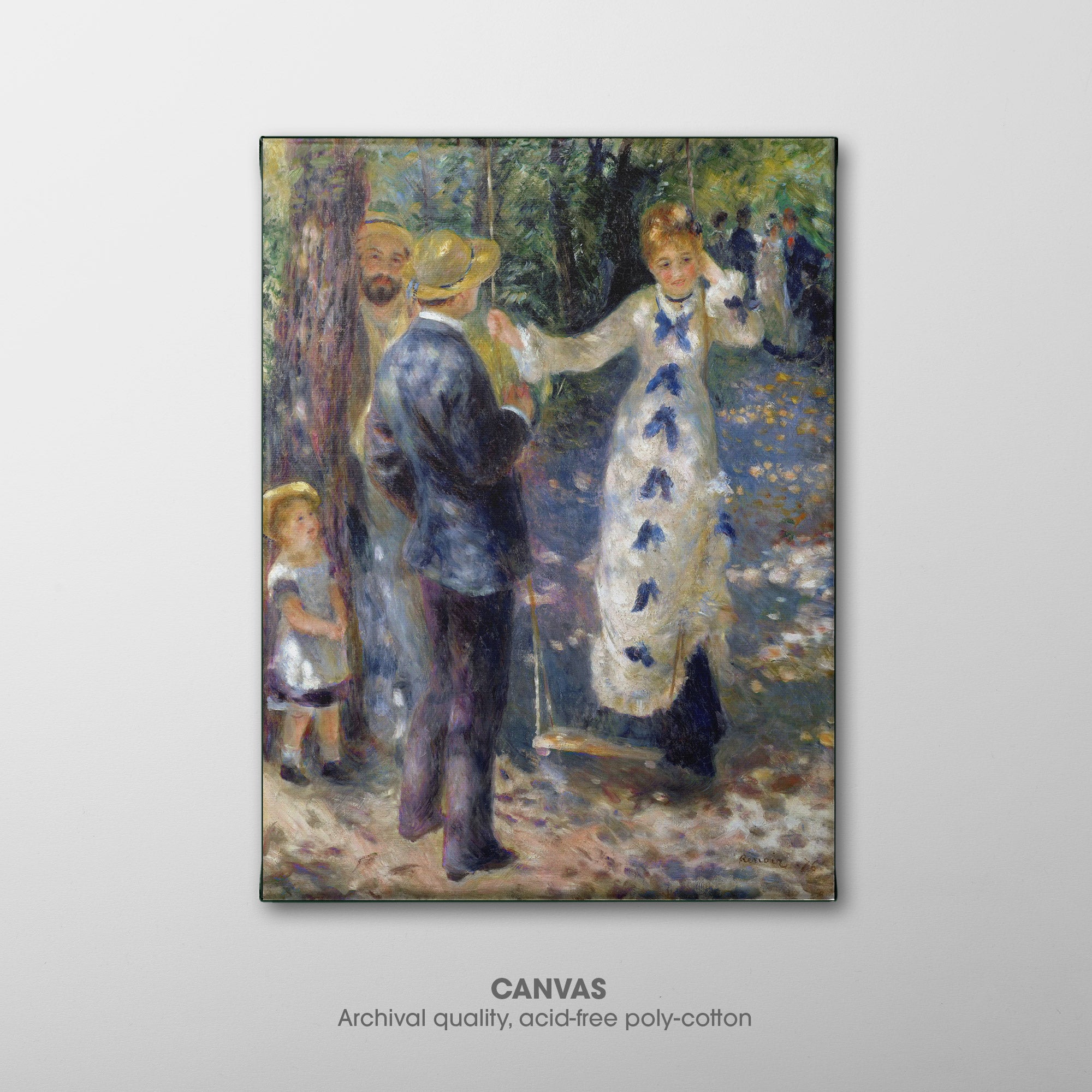
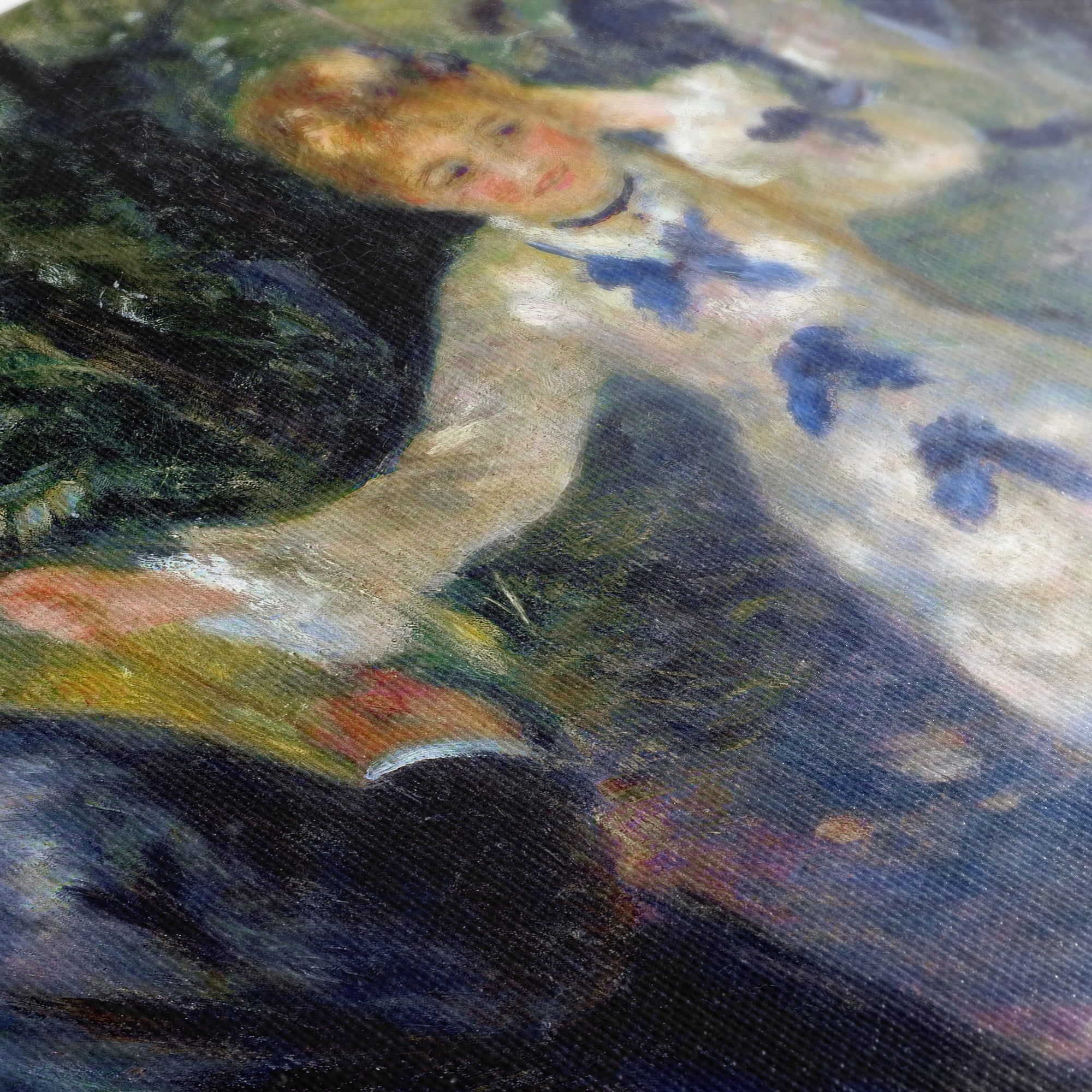 The Swing (1876, La Balançoire) by Pierre-Auguste Renoir was painted during his time at Montmarte in Paris, created at about the same time as Dance at Le Moulin de la Galette. Another representation of everyday life, a young man seen from behind ➵
The Swing (1876, La Balançoire) by Pierre-Auguste Renoir was painted during his time at Montmarte in Paris, created at about the same time as Dance at Le Moulin de la Galette. Another representation of everyday life, a young man seen from behind ➵◰ Canvas Reproductions
⧈ Framed Art Prints -
The Bonaventure Pine ☰ Signac ☷ Canvas

 Opus 239, The Bonaventure Pine (1893) by Paul Signac depicts an umbrella pine in Saint-Tropez, France. Painted in the pointillist style developed by Signac and Georges Seurat, it is his most famous painting, one of many he painted of the seaside town. ➵
Opus 239, The Bonaventure Pine (1893) by Paul Signac depicts an umbrella pine in Saint-Tropez, France. Painted in the pointillist style developed by Signac and Georges Seurat, it is his most famous painting, one of many he painted of the seaside town. ➵◰ Canvas Reproductions
⧈ Framed Art Prints -
Portrait of Félix Fénéon ☲ Signac ☴ Canvas
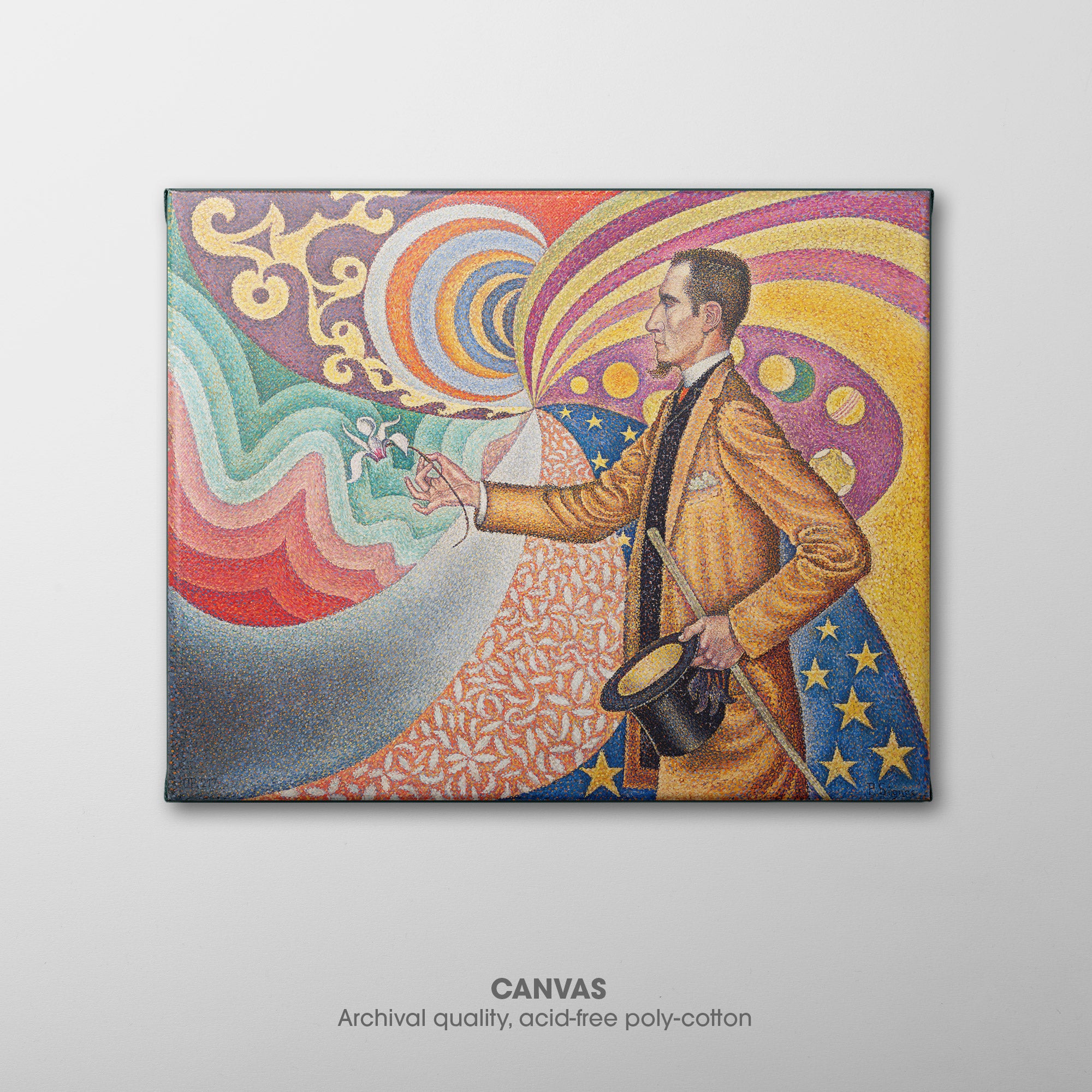
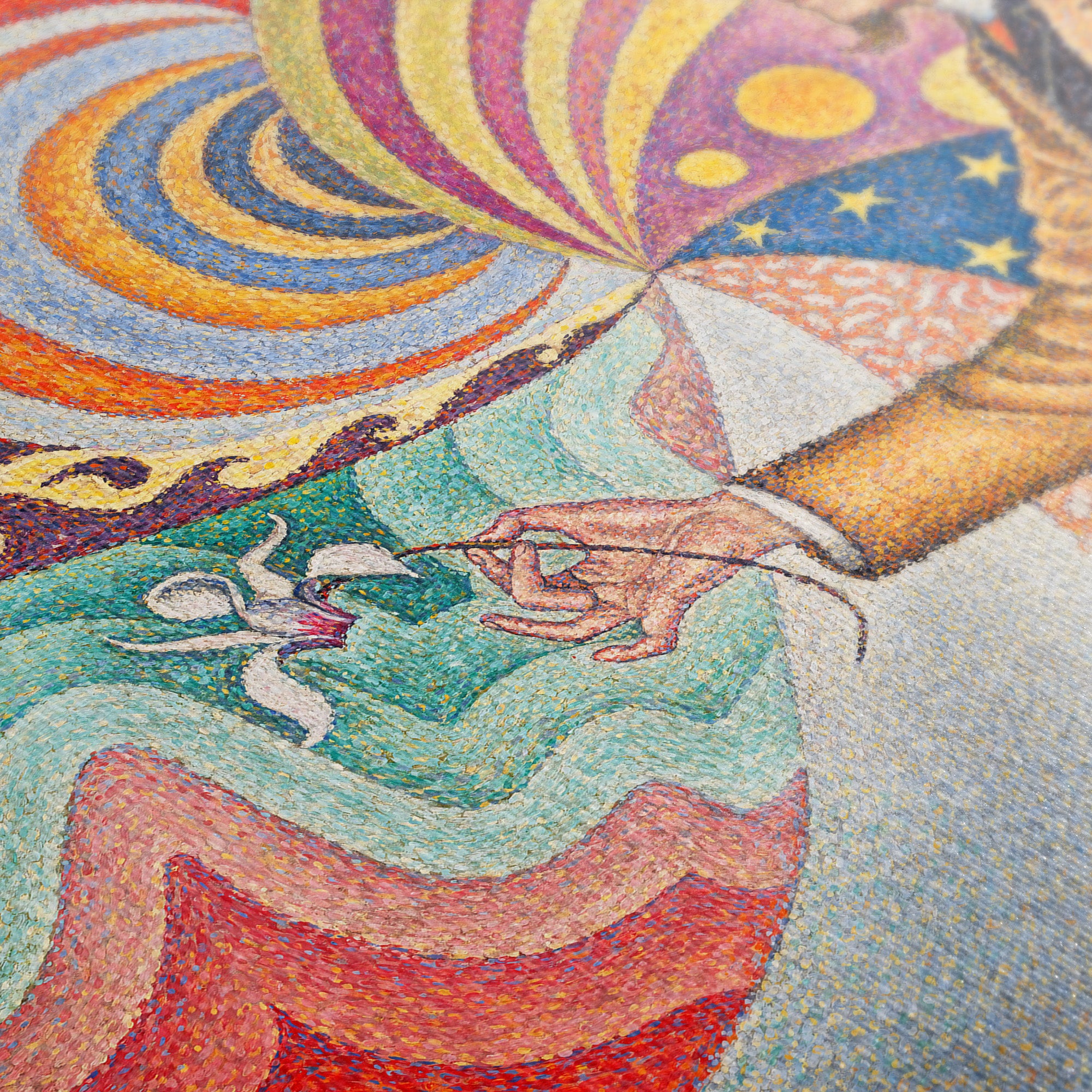 Opus 217, Against the Enamel of a Background Rhythmic with Beats and Angles, Tones, and Tints, Portrait of M. Félix Fénéon (1890) by Paul Signac depicts the French art critic Félix Fénéon standing in front of a swirling, kaleidoscope background. Fénéon and ➵
Opus 217, Against the Enamel of a Background Rhythmic with Beats and Angles, Tones, and Tints, Portrait of M. Félix Fénéon (1890) by Paul Signac depicts the French art critic Félix Fénéon standing in front of a swirling, kaleidoscope background. Fénéon and ➵◰ Canvas Reproductions
⧈ Framed Art Prints -
The Mill ☰ Rembrandt ☶ Canvas
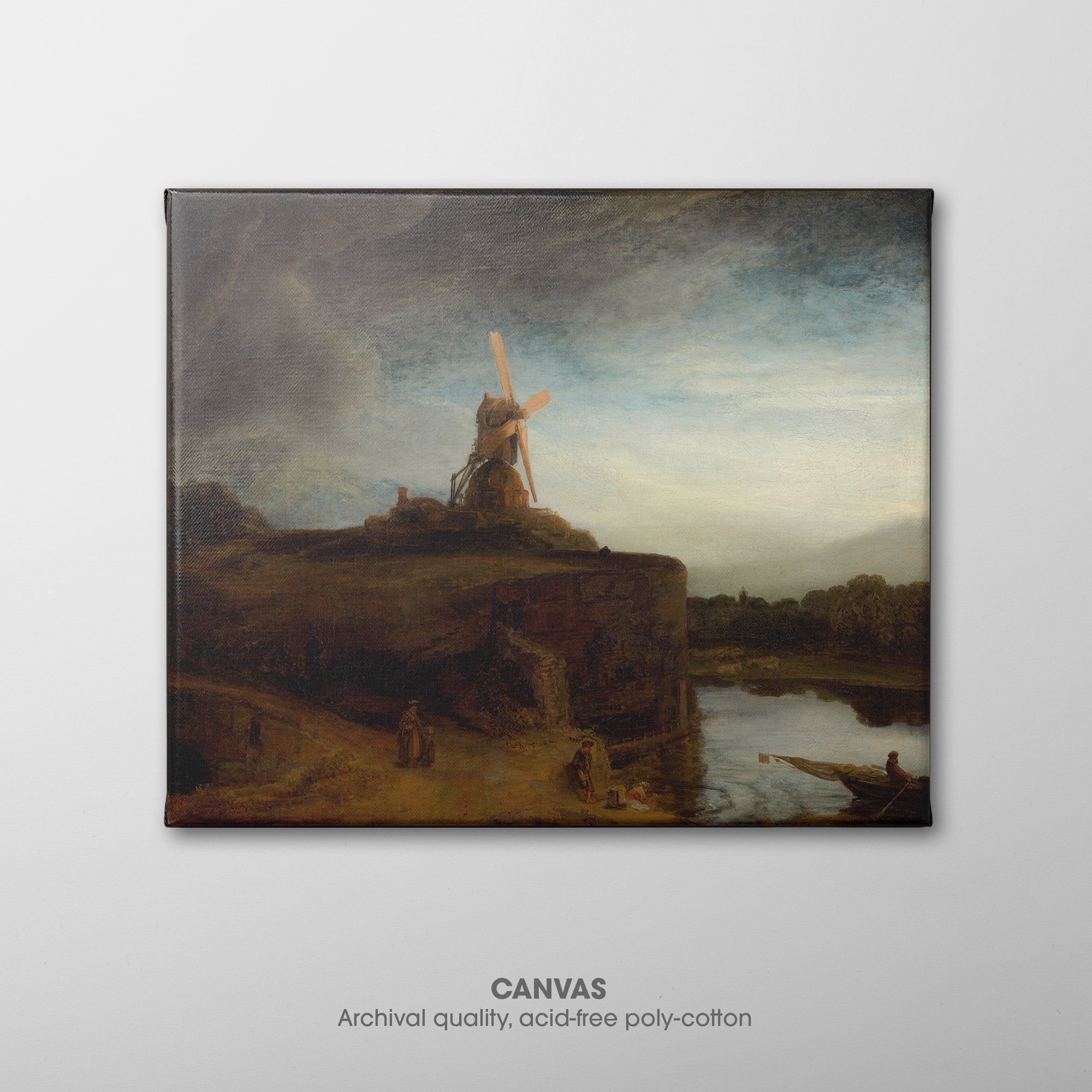
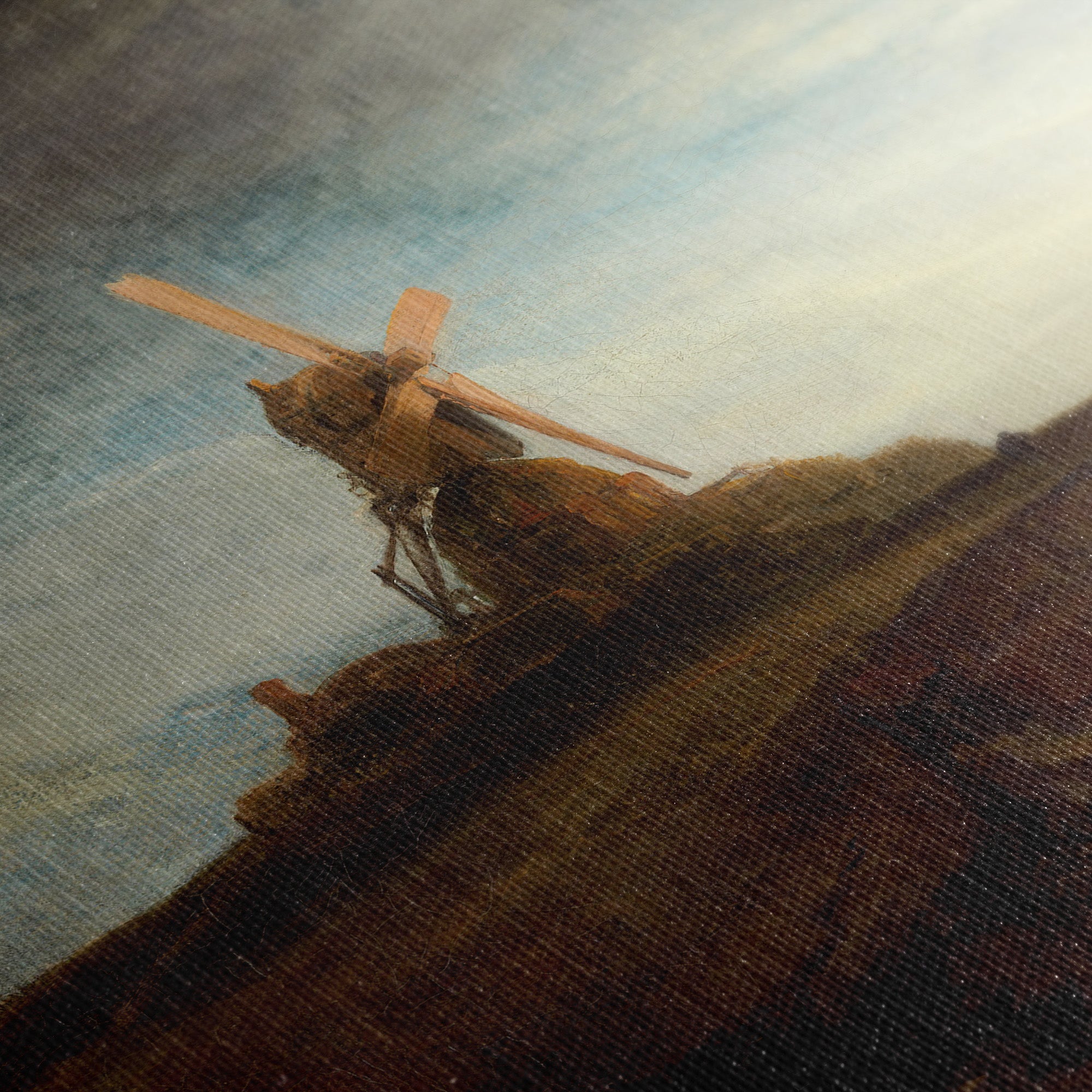 The Mill (1648) by Rembrandt van Rijn is his largest landscape, and only recently discovered, in that it was misattributed to other artists for centuries. Prior to restoration in 1977, the painting was covered in heavy layers of varnish that obscured detail ➵
The Mill (1648) by Rembrandt van Rijn is his largest landscape, and only recently discovered, in that it was misattributed to other artists for centuries. Prior to restoration in 1977, the painting was covered in heavy layers of varnish that obscured detail ➵◰ Canvas Reproductions
⧈ Framed Art Prints -
Storm on the Sea ☵ Rembrandt ☳ Canvas
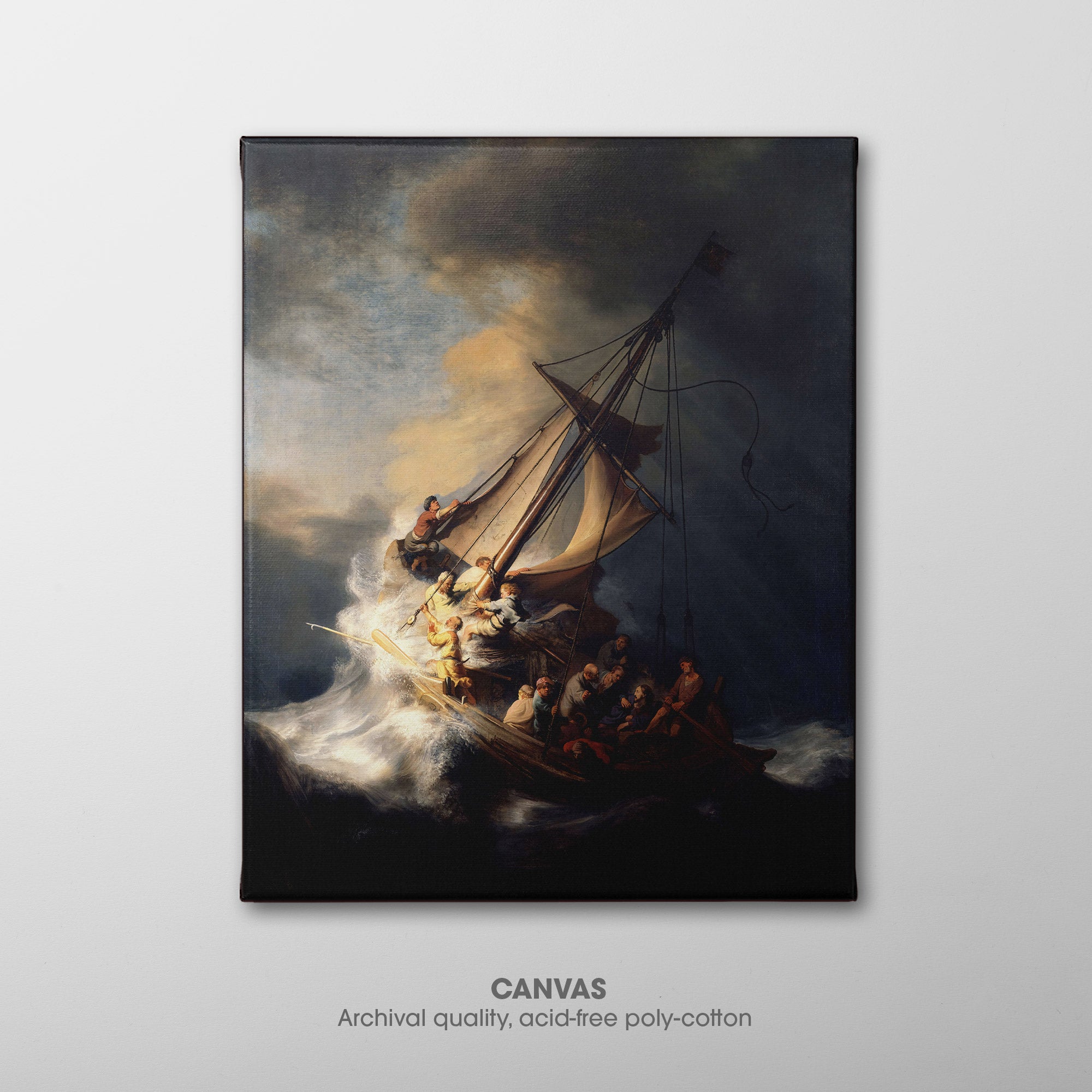
 Christ in the Storm on the Sea of Galilee (1633) by Rembrandt van Rijn is among the largest and earliest of his works, and his only seascape. It represents the biblical event in which Jesus calmed the storm on the Sea of ➵
Christ in the Storm on the Sea of Galilee (1633) by Rembrandt van Rijn is among the largest and earliest of his works, and his only seascape. It represents the biblical event in which Jesus calmed the storm on the Sea of ➵◰ Canvas Reproductions
⧈ Framed Art Prints -
Boulevard des Capucines ☳ Monet ☵ Canvas

 Boulevard des Capucines (1873) by Claude Monet depicts the view of the famous Paris boulevard as seen from the very rooms that would be used for the first Impressionist exhibition. With very little detail, Monet depicts the Parisian boulevard lined with trees ➵
Boulevard des Capucines (1873) by Claude Monet depicts the view of the famous Paris boulevard as seen from the very rooms that would be used for the first Impressionist exhibition. With very little detail, Monet depicts the Parisian boulevard lined with trees ➵◰ Canvas Reproductions
⧈ Framed Art Prints -
Impression, Sunrise ☰ Monet ☱ Canvas

 Impression, Sunrise (1872, Impression, soleil levant) by Claude Monet is credited with inspiring the name of the Impressionist movement. It depicts the industrialization of the port at Monet's hometown of Le Havre. The port is seen at sunrise, with two small rowboats ➵
Impression, Sunrise (1872, Impression, soleil levant) by Claude Monet is credited with inspiring the name of the Impressionist movement. It depicts the industrialization of the port at Monet's hometown of Le Havre. The port is seen at sunrise, with two small rowboats ➵◰ Canvas Reproductions
⧈ Framed Art Prints -
Léopold Survage ☰ Modigliani ☷ Canvas

 Portrait of the Artist Léopold Survage (1918) by Amedeo Modigliani dates from his most creative period. Léopold Survage (31 July 1879 - 31 October 1968) was a Russian-French painter who attended art school in Moscow, and moved to Paris around 1908. Survage ➵
Portrait of the Artist Léopold Survage (1918) by Amedeo Modigliani dates from his most creative period. Léopold Survage (31 July 1879 - 31 October 1968) was a Russian-French painter who attended art school in Moscow, and moved to Paris around 1908. Survage ➵◰ Canvas Reproductions
⧈ Framed Art Prints -
Iris Tree ☱ Modigliani ☴ Canvas
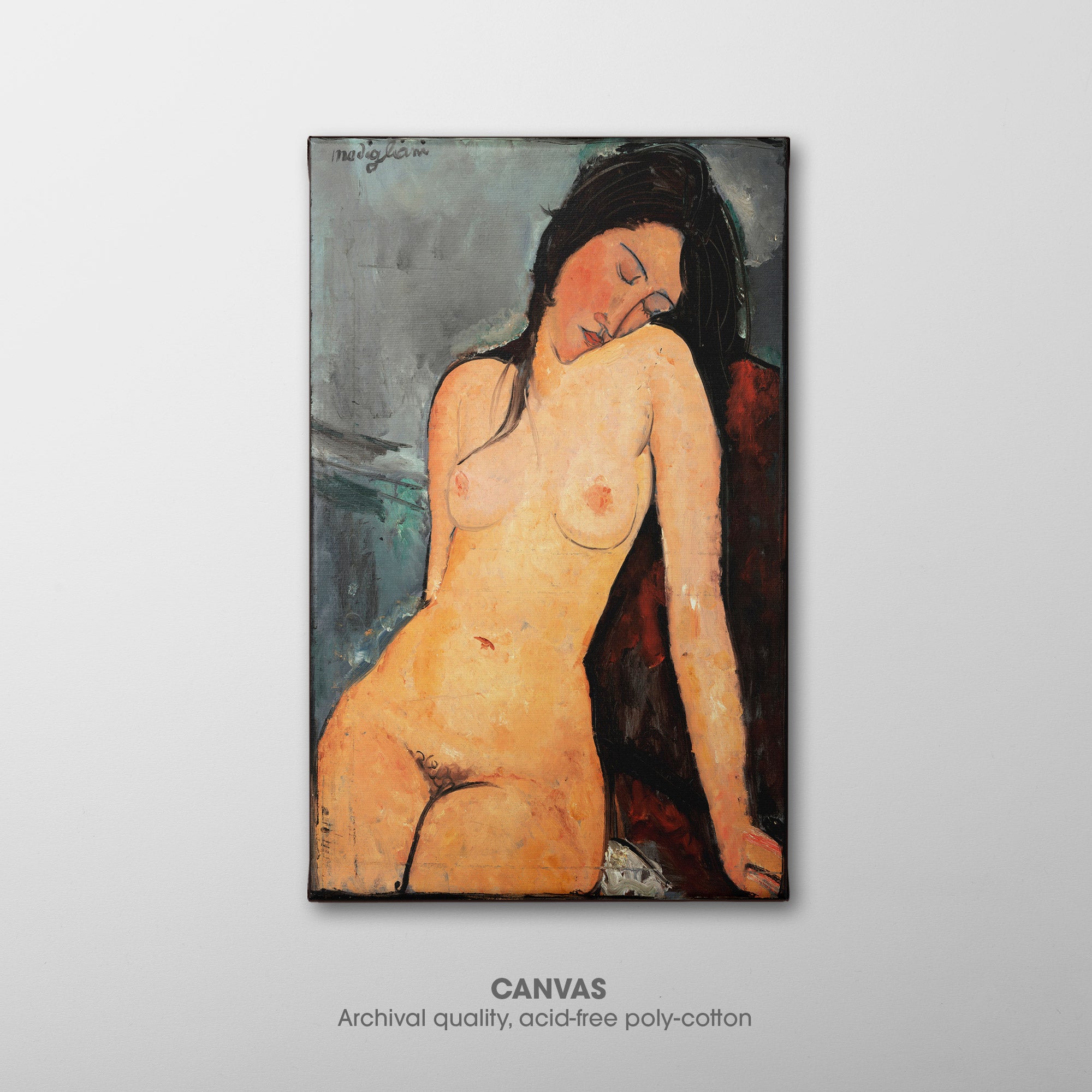
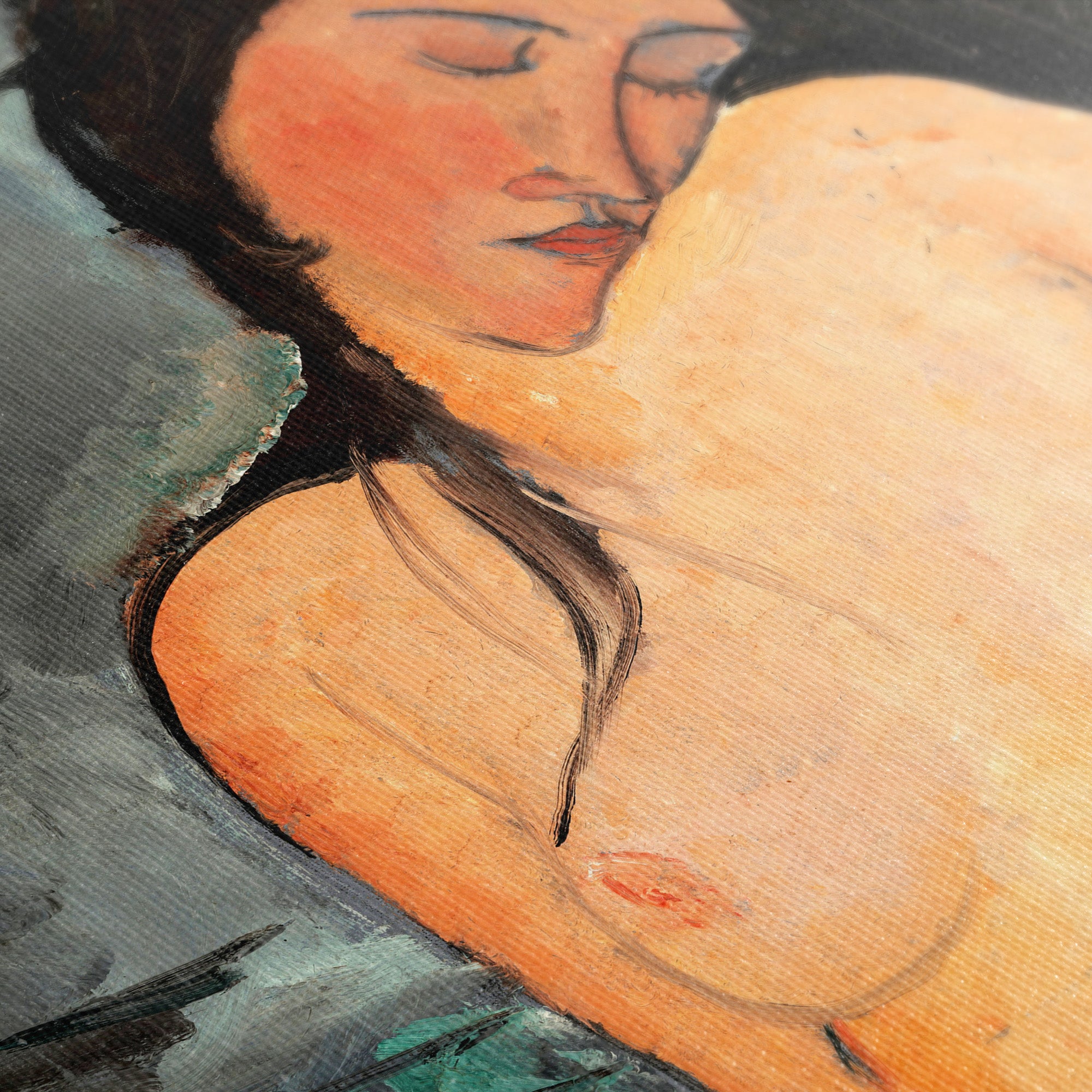 Female Nude (1916) by Amedeo Modigliani is a portrait of Iris Tree (27 January 1897 – 13 April 1968), an English poet, actress, and art model. She was a highly sought after model, being painted by Augustus John, simultaneously by Duncan Grant, ➵
Female Nude (1916) by Amedeo Modigliani is a portrait of Iris Tree (27 January 1897 – 13 April 1968), an English poet, actress, and art model. She was a highly sought after model, being painted by Augustus John, simultaneously by Duncan Grant, ➵◰ Canvas Reproductions
⧈ Framed Art Prints -
The Goldfish ☱ Matisse ☵ Canvas
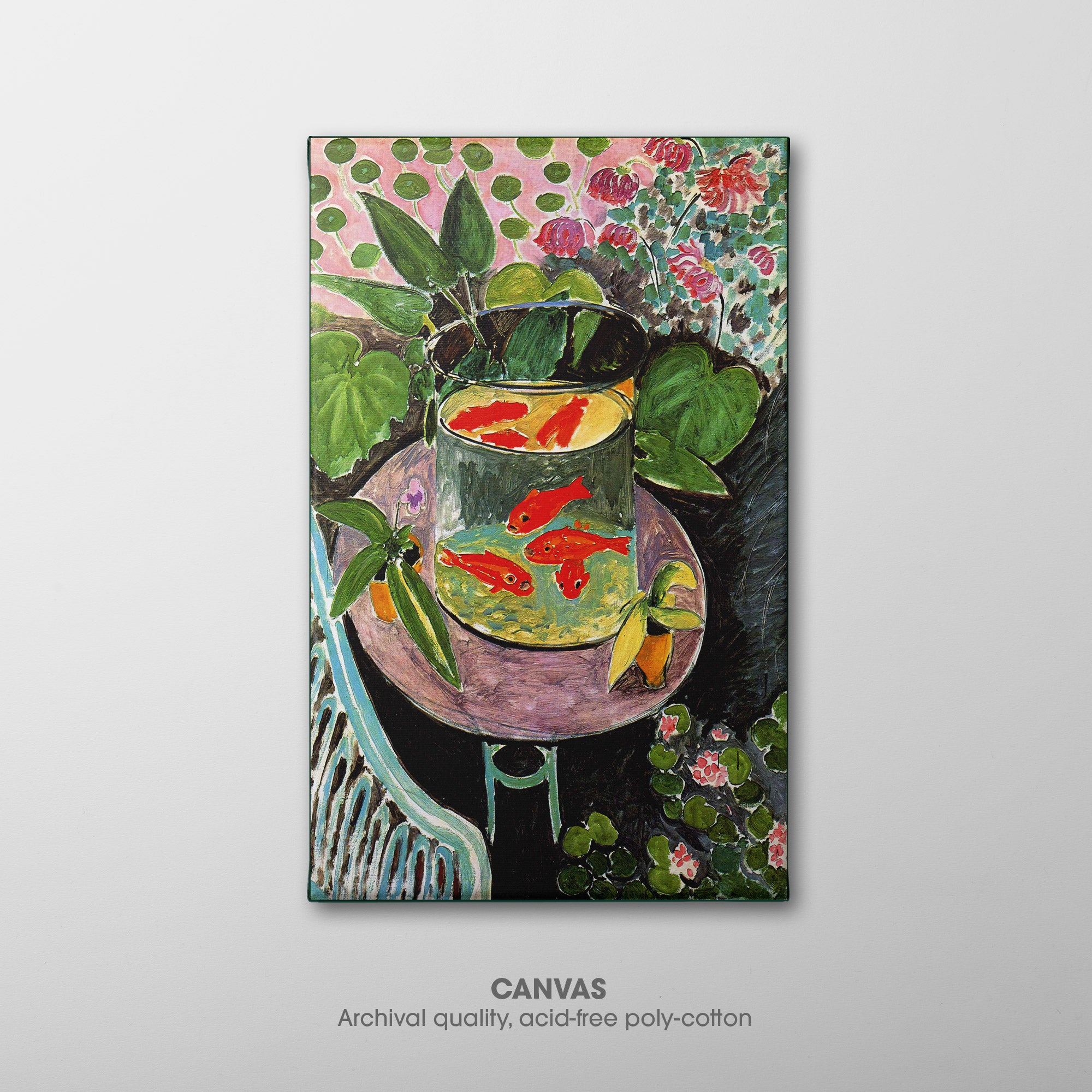
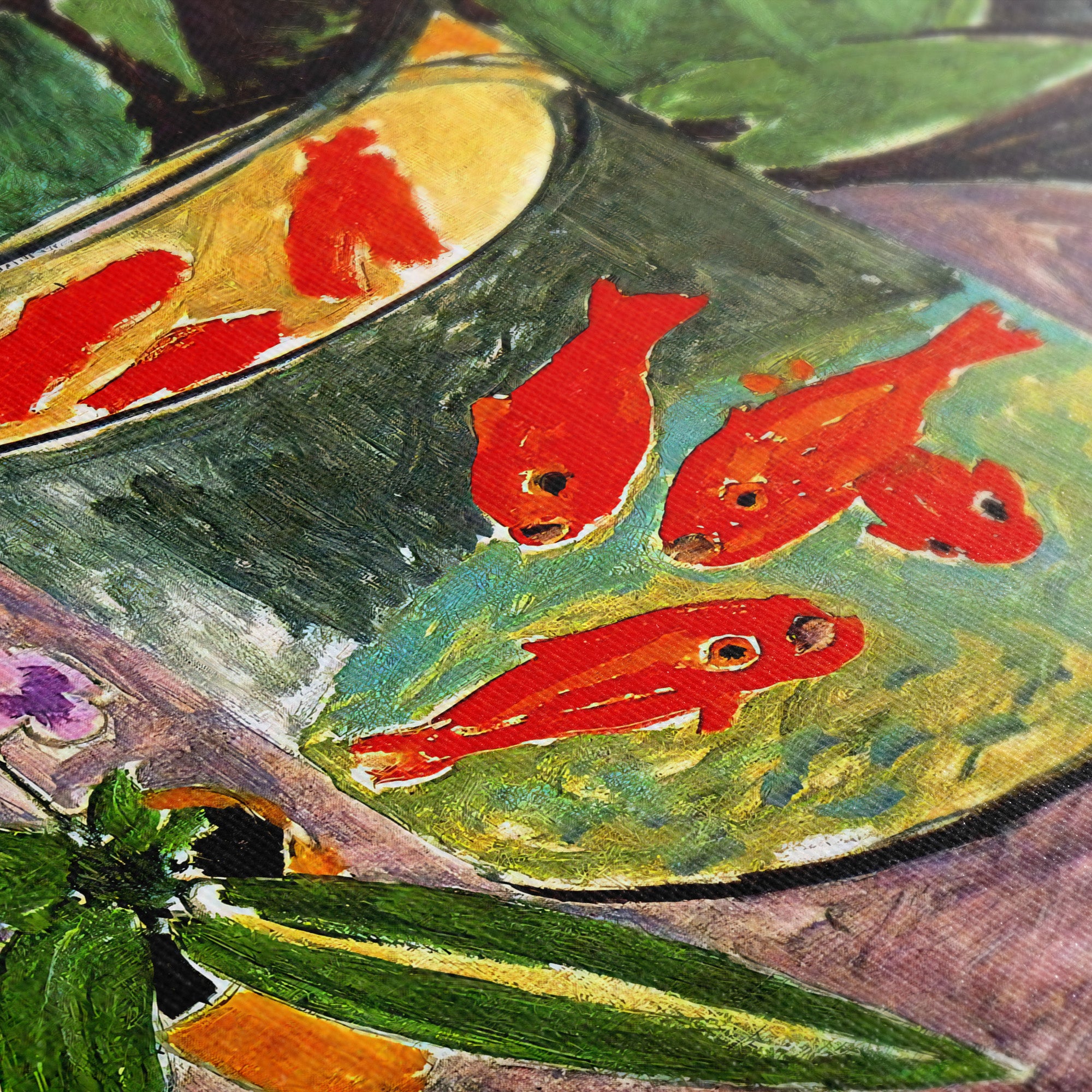 The Goldfish (1912) by Henri Matisse is part of a series that he produced between the spring and early summer of 1912. Goldfish became a recurring subject after his visit to Tangier, Morocco, where he noted how locals would day-dream while gazing ➵
The Goldfish (1912) by Henri Matisse is part of a series that he produced between the spring and early summer of 1912. Goldfish became a recurring subject after his visit to Tangier, Morocco, where he noted how locals would day-dream while gazing ➵◰ Canvas Reproductions
⧈ Framed Art Prints -
Open Window, Collioure ☱ Matisse ☴ Canvas
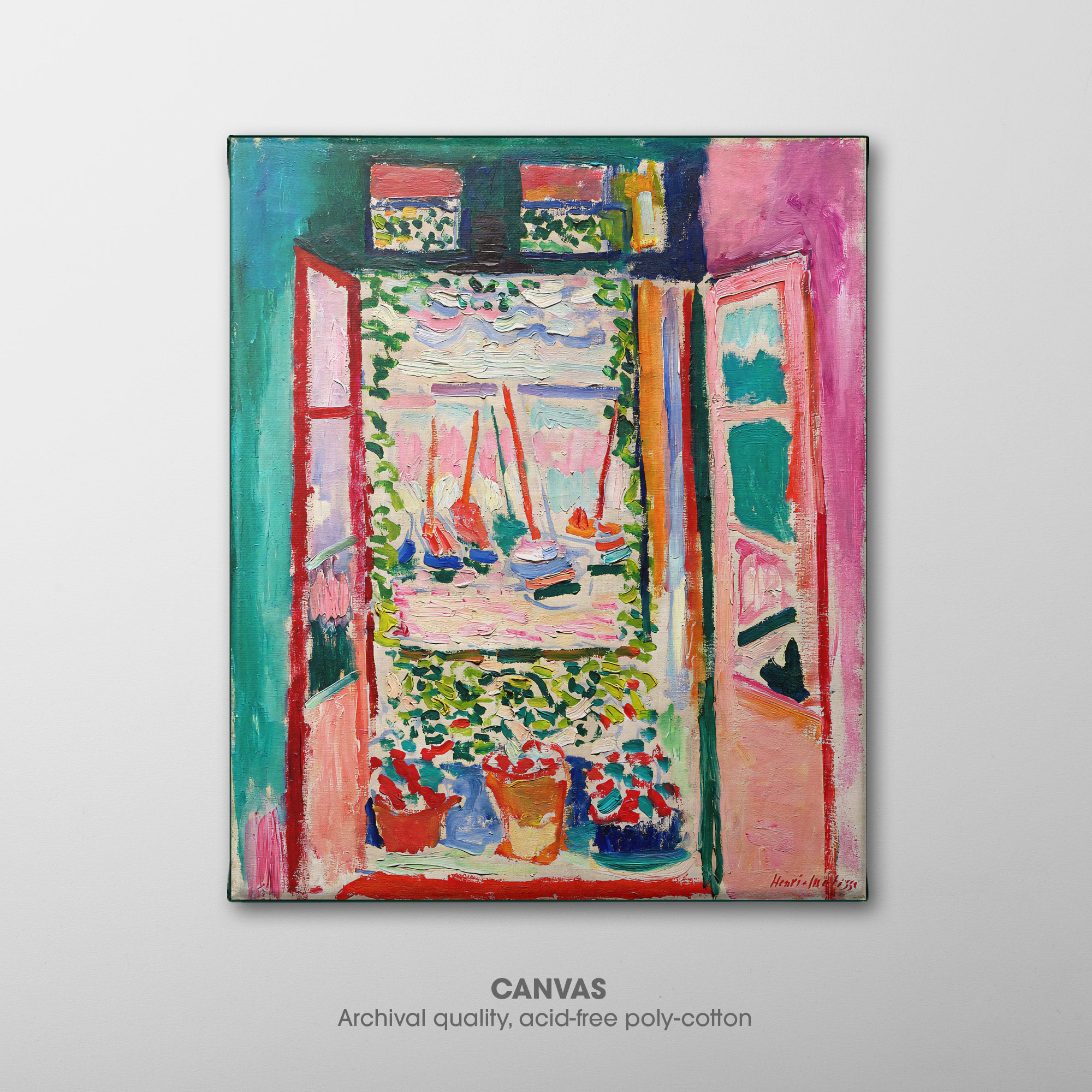
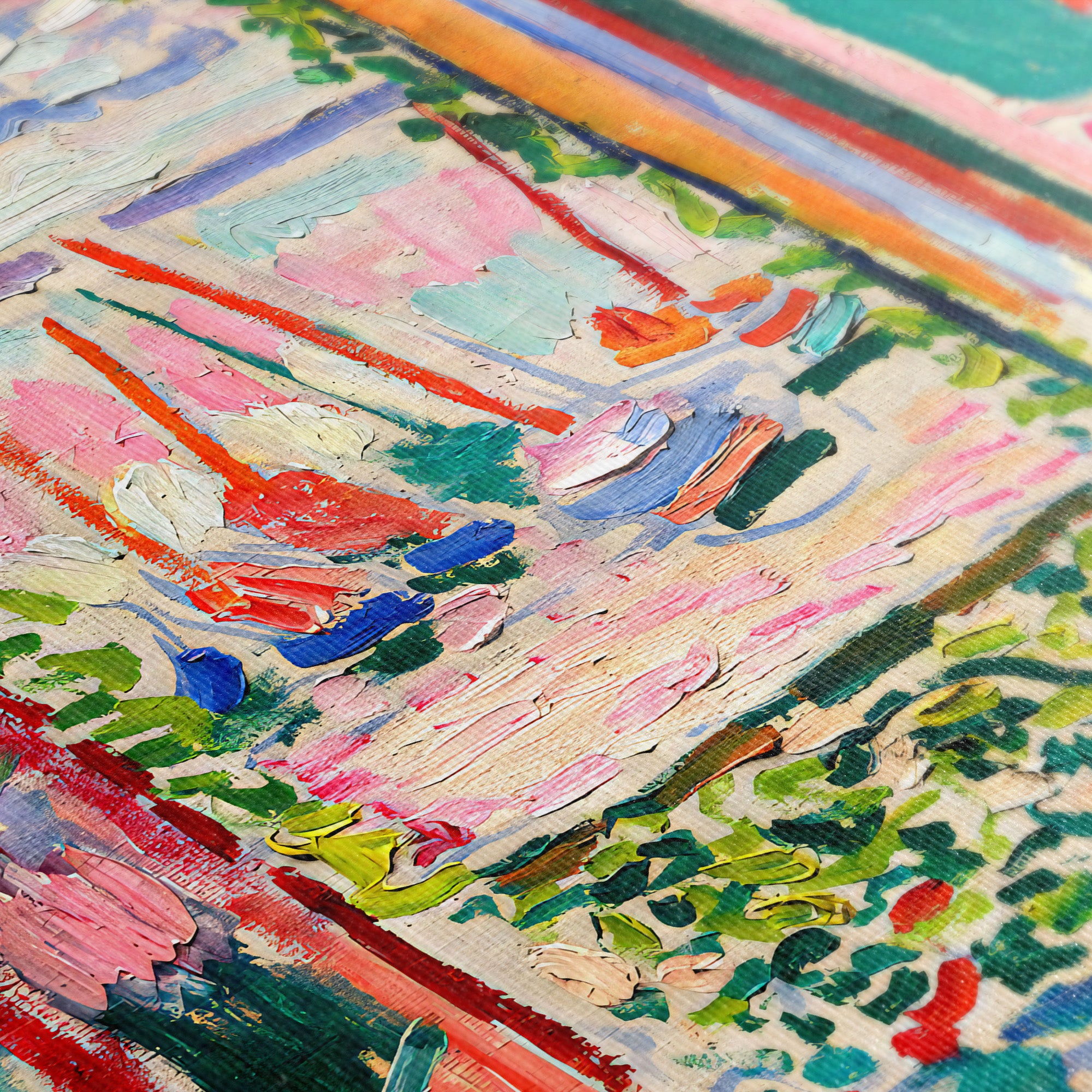 Open Window, Collioure (1905) by Henri Matisse is a prime example of Fauvism, a style of art that he was instrumental in developing, noted for bold and bright colors used to express emotion over realism. Matisse loved painting open windows, here depicting ➵
Open Window, Collioure (1905) by Henri Matisse is a prime example of Fauvism, a style of art that he was instrumental in developing, noted for bold and bright colors used to express emotion over realism. Matisse loved painting open windows, here depicting ➵◰ Canvas Reproductions
⧈ Framed Art Prints -
Chop Suey ☶ Hopper ☷ Canvas

 Chop Suey (1929) by Edward Hopper pays particular attention to the effects of light in the scene, and similar to Nighthawks, there is an element of loneliness as each figure seems isolated and withdrawn from the others. It depicts two women seated ➵
Chop Suey (1929) by Edward Hopper pays particular attention to the effects of light in the scene, and similar to Nighthawks, there is an element of loneliness as each figure seems isolated and withdrawn from the others. It depicts two women seated ➵◰ Canvas Reproductions
⧈ Framed Art Prints -
Nighthawks ☷ Hopper ☲ Canvas

 Nighthawks (1942) by Edward Hopper is his most recognizable painting and one of the most famous in American art. Various artists have produced works that allude, parody or pay homage to it in literature, film, television, music and other paintings. It depicts ➵
Nighthawks (1942) by Edward Hopper is his most recognizable painting and one of the most famous in American art. Various artists have produced works that allude, parody or pay homage to it in literature, film, television, music and other paintings. It depicts ➵◰ Canvas Reproductions
⧈ Framed Art Prints -
Wanderer above the Sea of Fog ☵ Friedrich ☳ Canvas

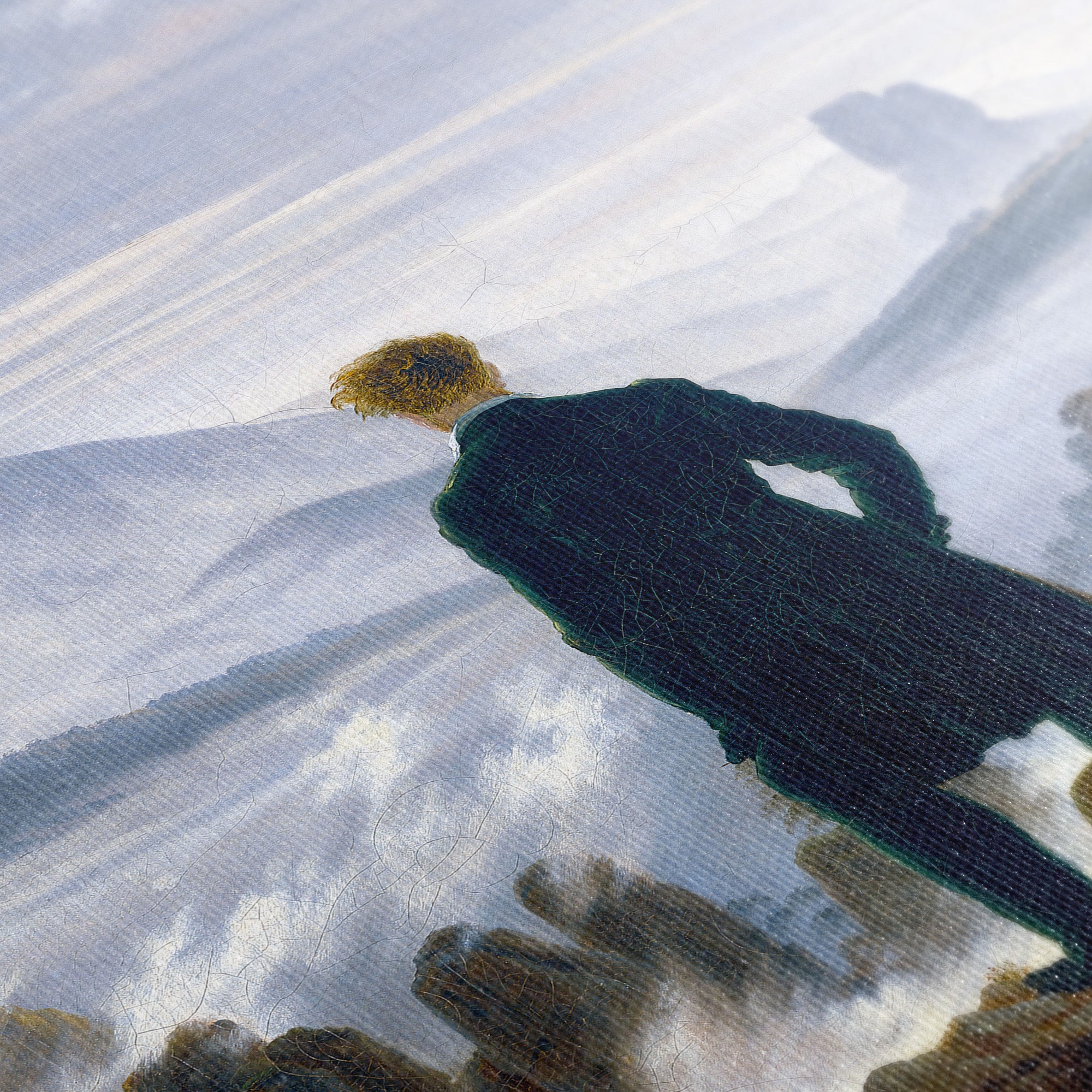 Wanderer above the Sea of Fog (1818, Wanderer über dem Nebelmeer) by Casper David Friedrich is possibly a self-portrait, interpreted as an emblem of self-reflection and contemplation of life's path. The painting is a significant example of Rückenfigur (a rear-facing figure that ➵
Wanderer above the Sea of Fog (1818, Wanderer über dem Nebelmeer) by Casper David Friedrich is possibly a self-portrait, interpreted as an emblem of self-reflection and contemplation of life's path. The painting is a significant example of Rückenfigur (a rear-facing figure that ➵◰ Canvas Reproductions
⧈ Framed Art Prints -
Woman in front of the Setting Sun ☲ Friedrich ☰ Canvas

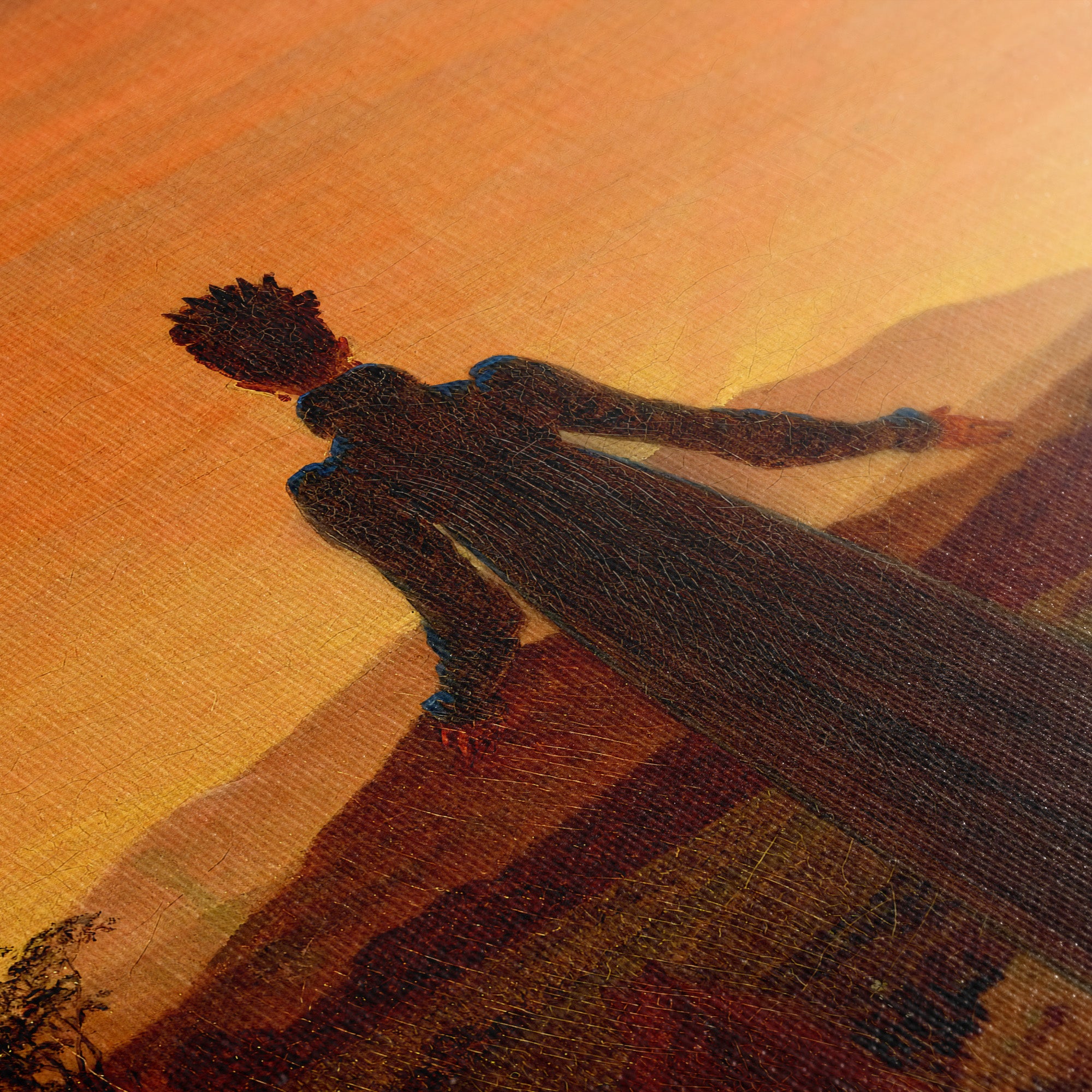 Woman in front of the Setting Sun (1818, Frau vor der untergehenden Sonne) by Casper David Friedrich, also known as Woman before the Rising Sun, is possibly the artist's wife Caroline Brommer. Friedrich makes use of Rückenfigur (a rear-facing figure that is ➵
Woman in front of the Setting Sun (1818, Frau vor der untergehenden Sonne) by Casper David Friedrich, also known as Woman before the Rising Sun, is possibly the artist's wife Caroline Brommer. Friedrich makes use of Rückenfigur (a rear-facing figure that is ➵◰ Canvas Reproductions
⧈ Framed Art Prints -
Self-Portrait ☷ Gauguin ☰ Canvas
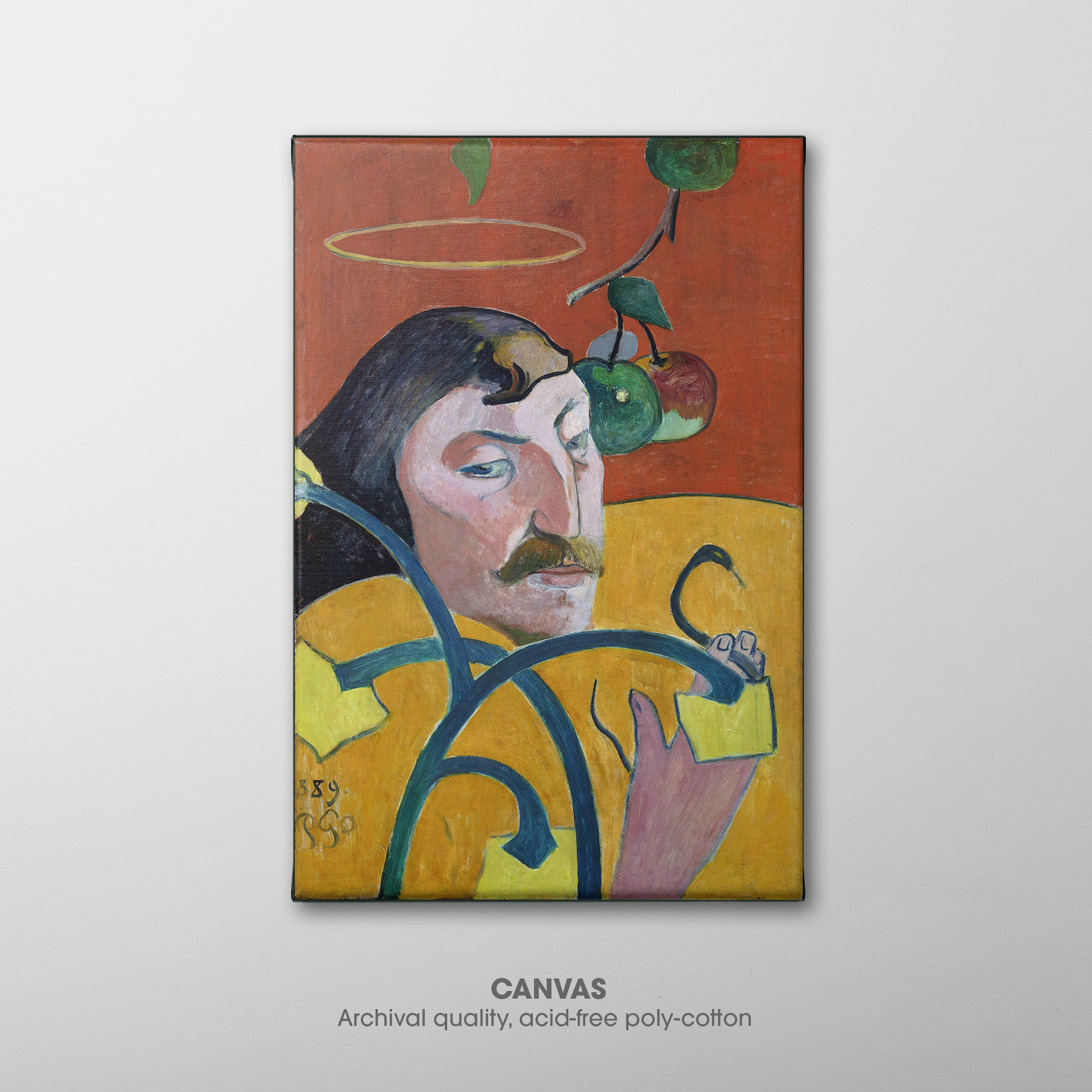
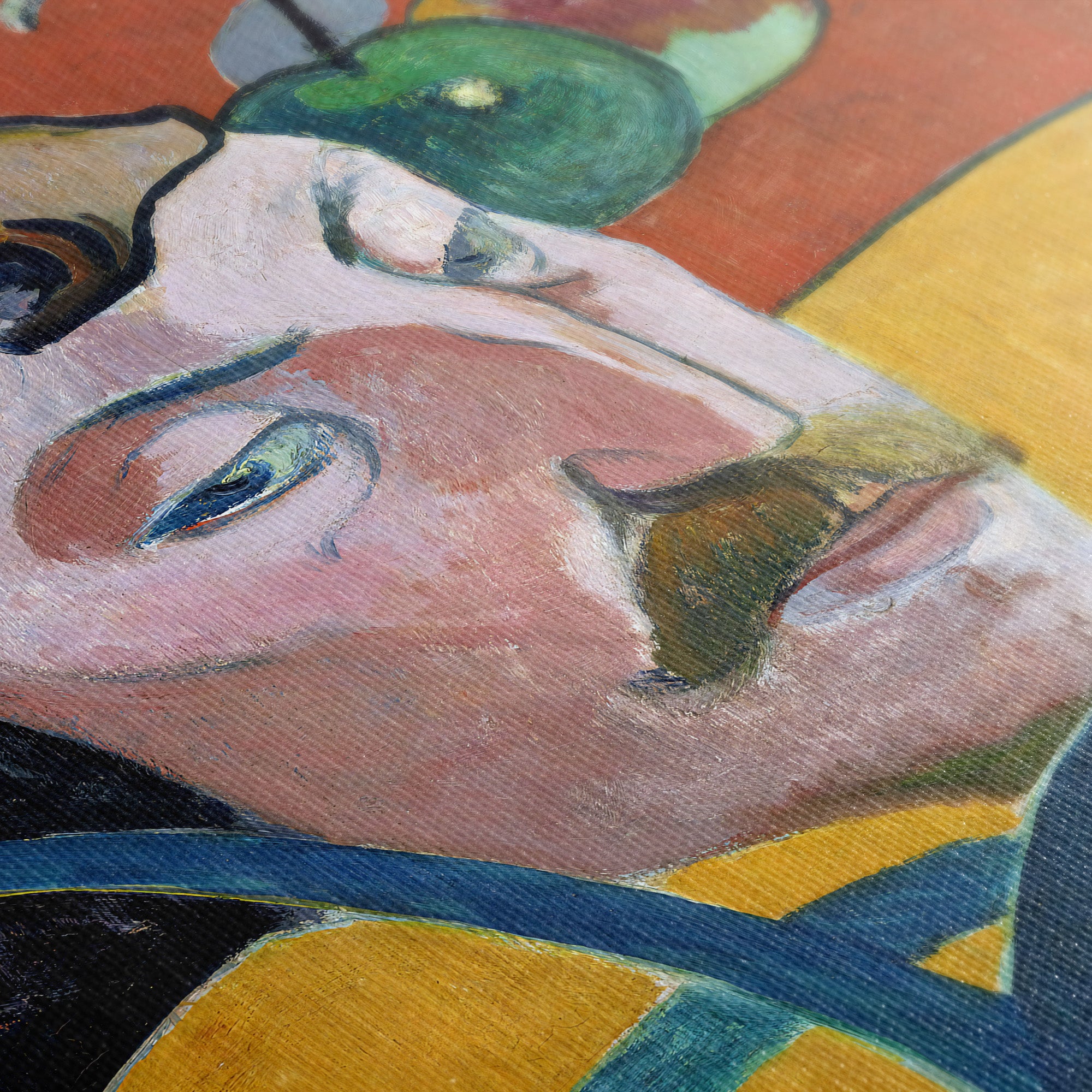 Self-Portrait with Halo and Snake (1889) by Paul Gauguin is one of more than 40 self-portraits he completed during his lifetime. This portrait demonstrates his use of religious symbolism, and the influence of Japanese wood-block prints. Gauguin divides the canvas in half, ➵
Self-Portrait with Halo and Snake (1889) by Paul Gauguin is one of more than 40 self-portraits he completed during his lifetime. This portrait demonstrates his use of religious symbolism, and the influence of Japanese wood-block prints. Gauguin divides the canvas in half, ➵◰ Canvas Reproductions
⧈ Framed Art Prints -
The Wave ☳ Gauguin ☵ Canvas

 The Wave (1888, La Vague) by Paul Gauguin was painted during a trip to Brittany, France. It characterizes his evolving style from realistic portraits and landscapes to more symbolic representations. The perspective and scale, lack of horizon, and rainbow of color open ➵
The Wave (1888, La Vague) by Paul Gauguin was painted during a trip to Brittany, France. It characterizes his evolving style from realistic portraits and landscapes to more symbolic representations. The perspective and scale, lack of horizon, and rainbow of color open ➵◰ Canvas Reproductions
⧈ Framed Art Prints -
Adoration of the Magi ☷ Bosch ☴ Canvas

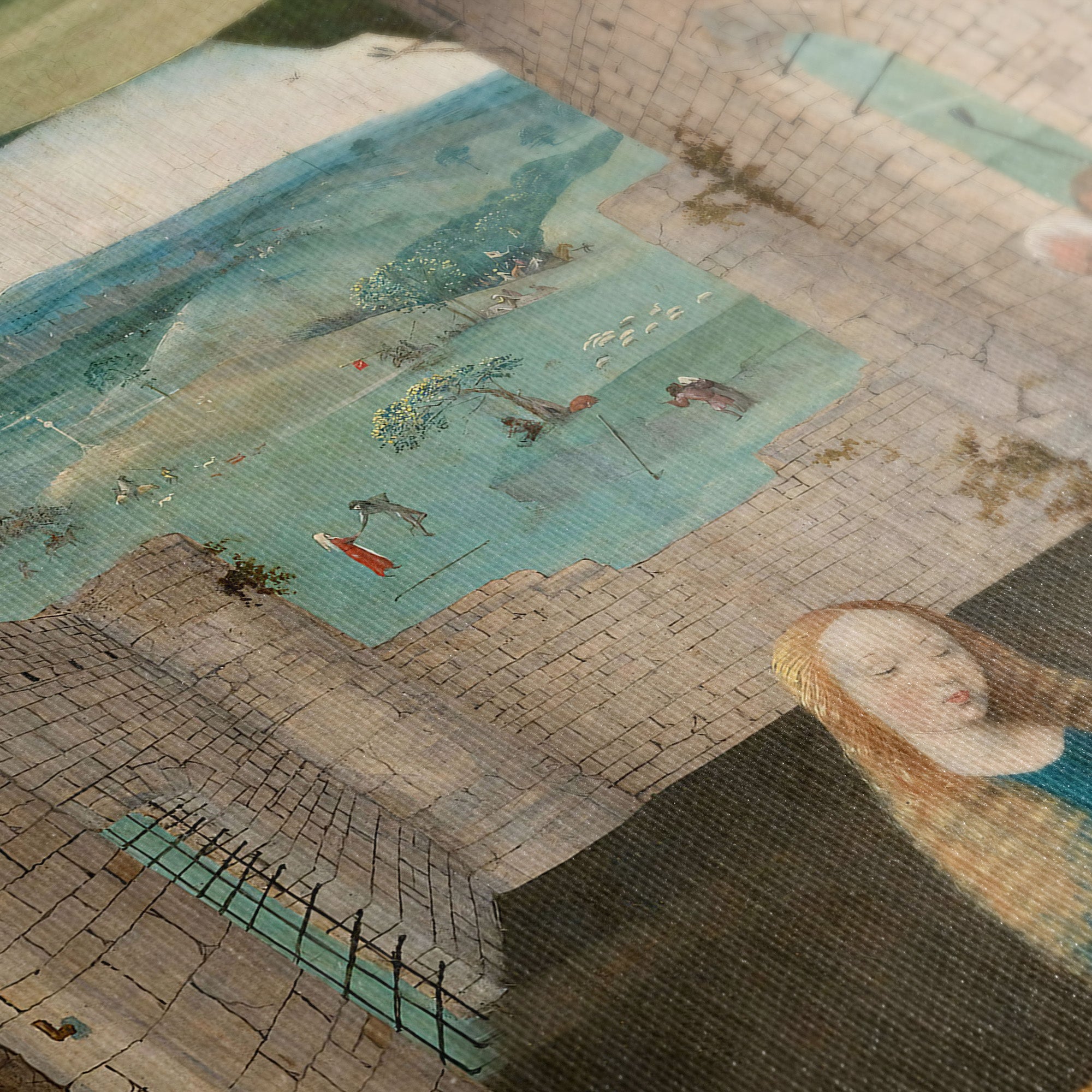 The Adoration of the Magi (1475) by Hieronymus Bosch is an unusual depiction of a popular religious theme, the three magi bearing gifts of gold, frankincense, and myrrh to the Virgin Mary and Christ Child (Matthew 2:11). It is staged in the ➵
The Adoration of the Magi (1475) by Hieronymus Bosch is an unusual depiction of a popular religious theme, the three magi bearing gifts of gold, frankincense, and myrrh to the Virgin Mary and Christ Child (Matthew 2:11). It is staged in the ➵◰ Canvas Reproductions
⧈ Framed Art Prints -
The Conjurer ☵ Bosch ☴ Canvas
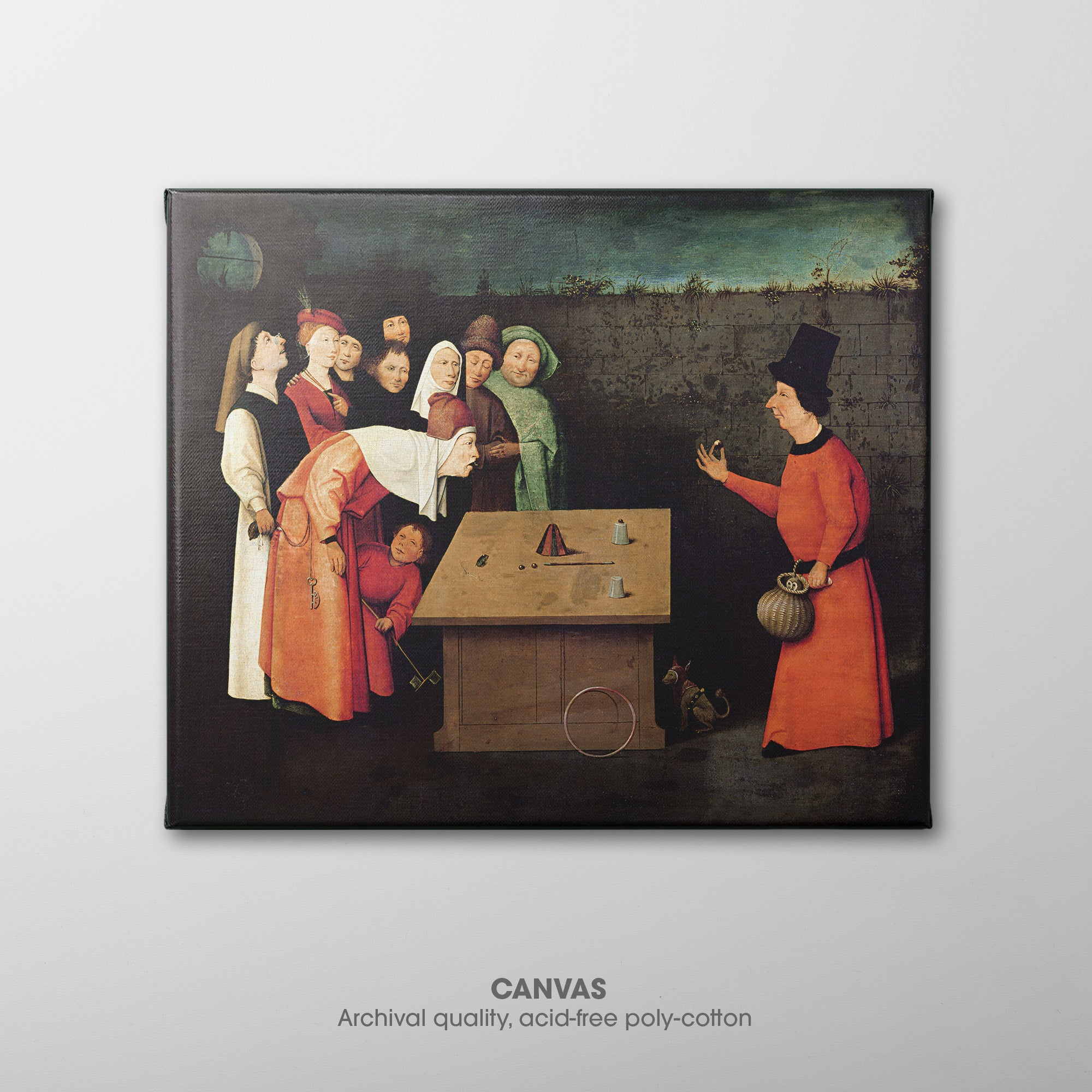
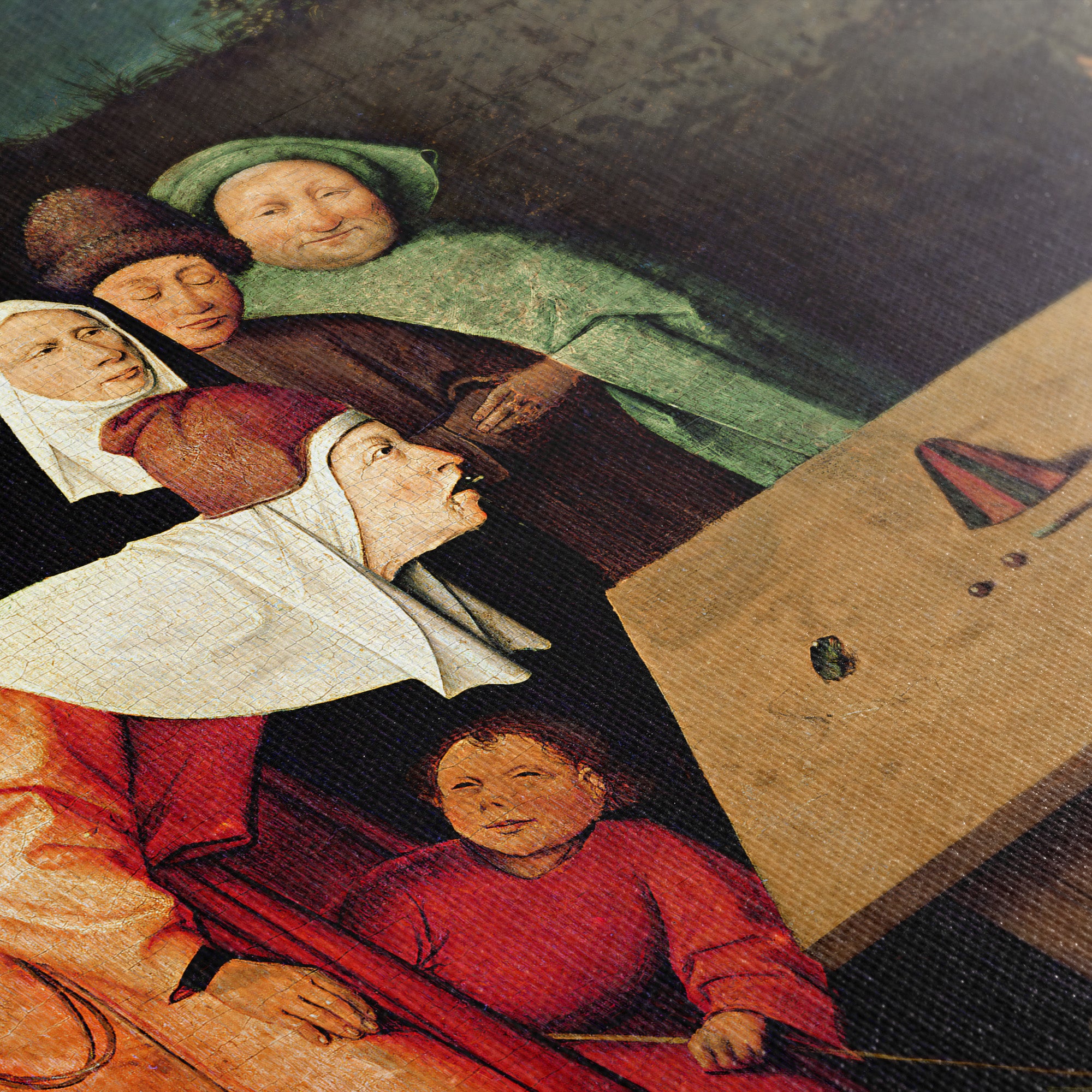 The Conjurer (1502) by Hieronymus Bosch is a notably secular painting whereas he is generally known for religious depictions. It is one of five versions of the painting, and one engraving, made when scenes of everyday life were becoming more popular. Bosch ➵
The Conjurer (1502) by Hieronymus Bosch is a notably secular painting whereas he is generally known for religious depictions. It is one of five versions of the painting, and one engraving, made when scenes of everyday life were becoming more popular. Bosch ➵◰ Canvas Reproductions
⧈ Framed Art Prints -
Red Fuji ☶ Hokusai ☰ Canvas
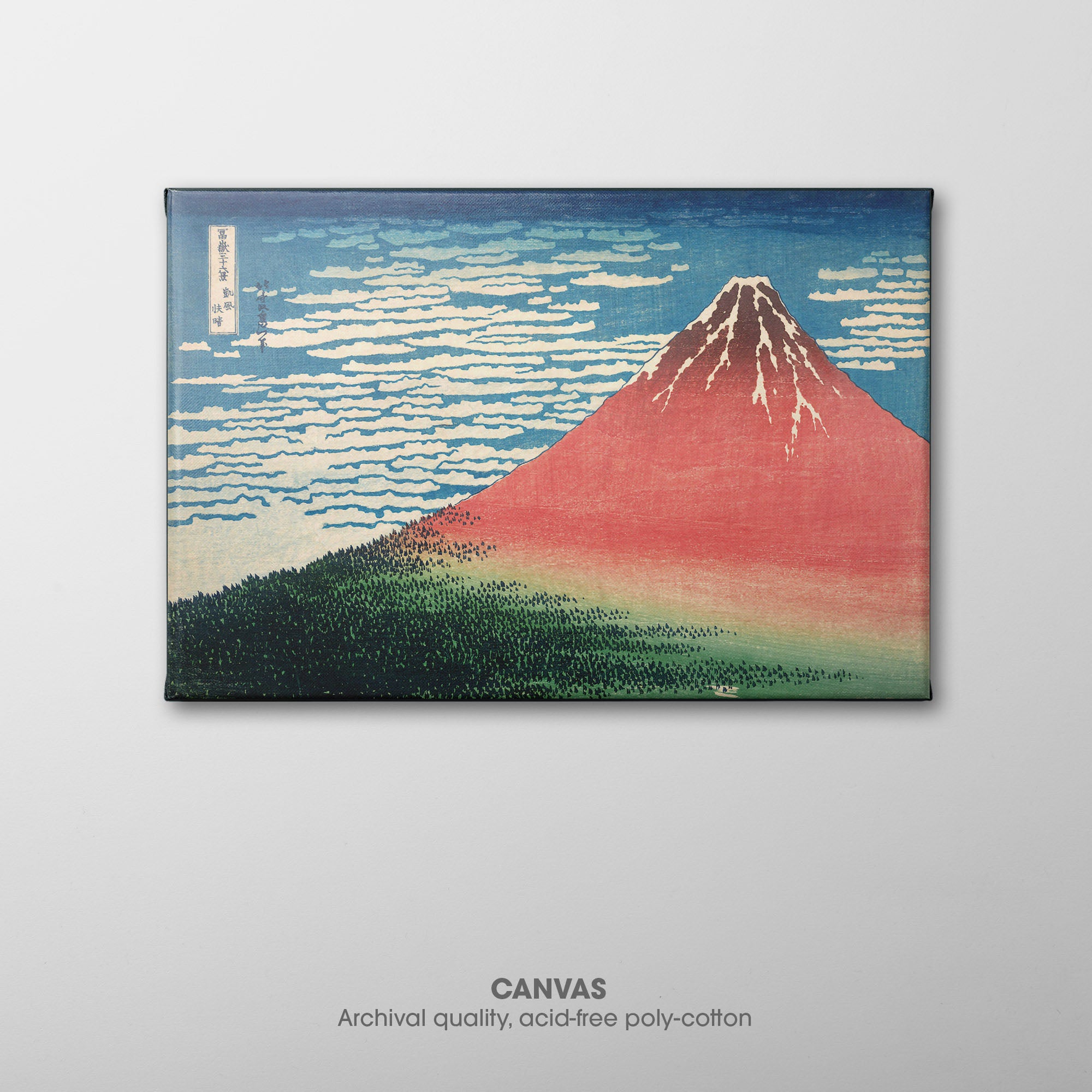
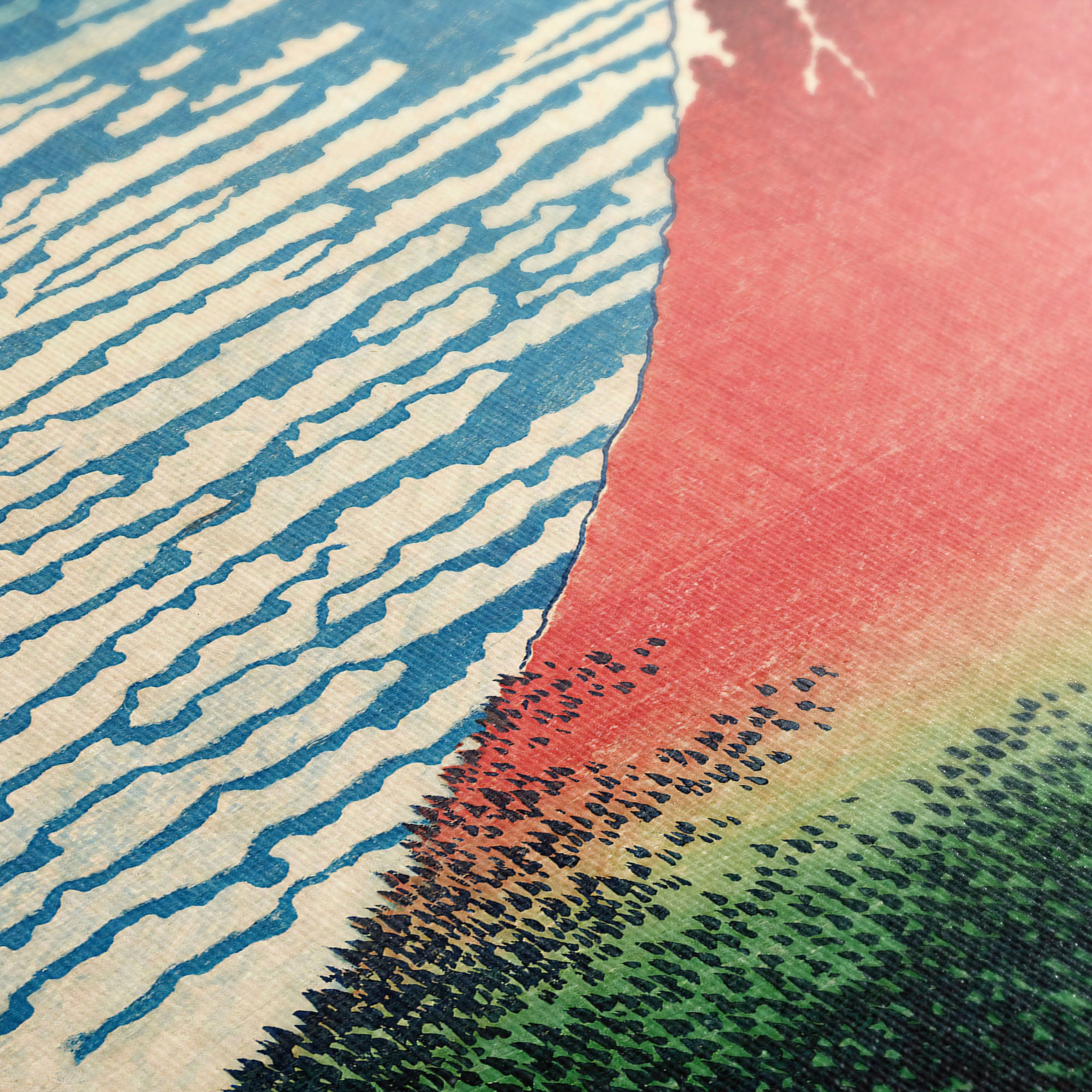 Red Fuji (1832) by Katsushika Hokusai, officially titled Fine Wind, Clear Morning (凱風快晴, Gaifū Kaisei), is a Japanese ukiyo-e woodblock print from Hokusai's series Thirty-six Views of Mount Fuji. This print prominently depicts a snow-capped Mount Fuji surrounded by trees and clouds, ➵
Red Fuji (1832) by Katsushika Hokusai, officially titled Fine Wind, Clear Morning (凱風快晴, Gaifū Kaisei), is a Japanese ukiyo-e woodblock print from Hokusai's series Thirty-six Views of Mount Fuji. This print prominently depicts a snow-capped Mount Fuji surrounded by trees and clouds, ➵◰ Canvas Reproductions
⧈ Framed Art Prints -
Models ☶ Seurat ☳ Canvas

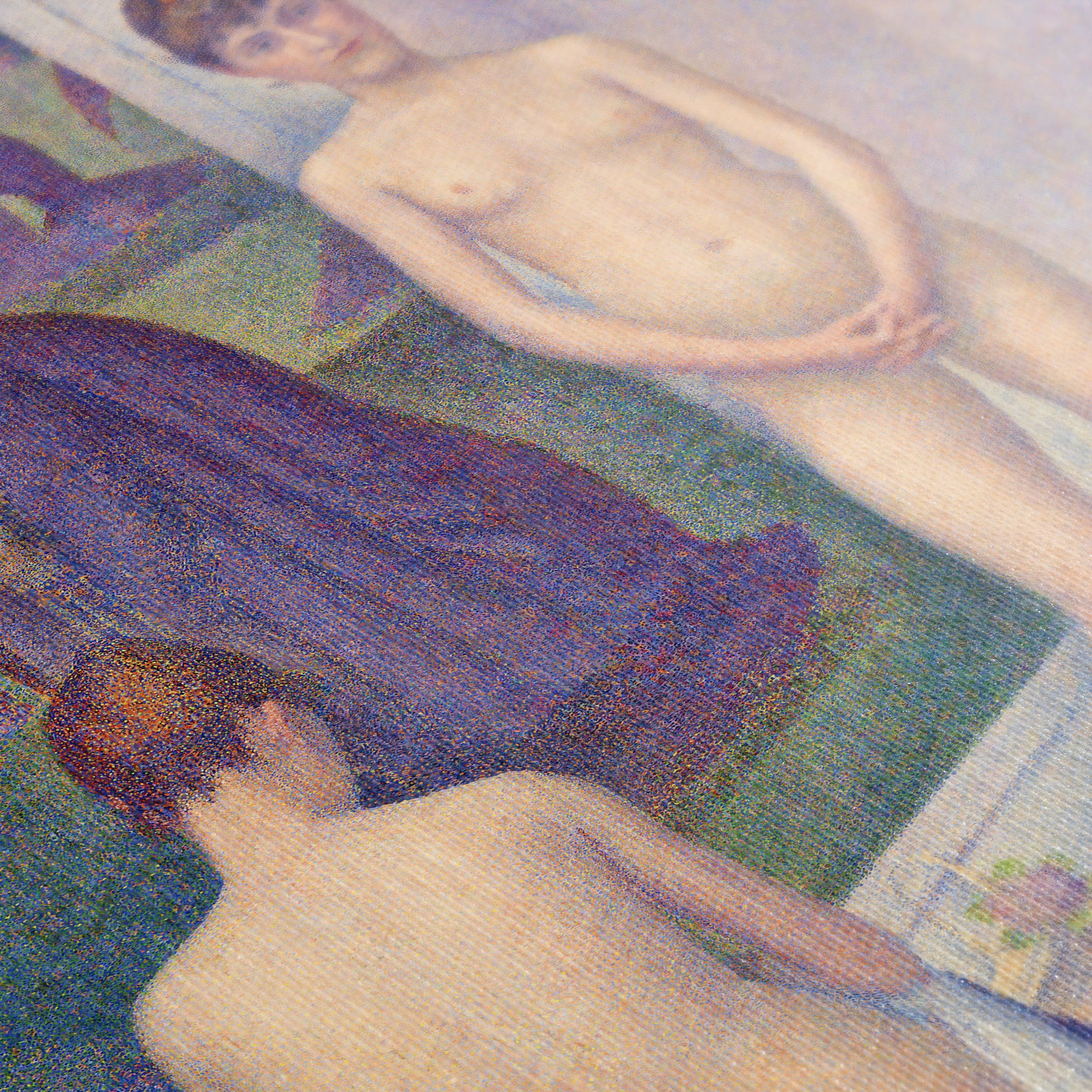 Models (1888) by Georges Seurat, also known as The Three Models and Les Poseuses, is notable for recreating an existing painting: the left background is part of his painting A Sunday Afternoon on the Island of La Grande Jatte. This painting was ➵
Models (1888) by Georges Seurat, also known as The Three Models and Les Poseuses, is notable for recreating an existing painting: the left background is part of his painting A Sunday Afternoon on the Island of La Grande Jatte. This painting was ➵◰ Canvas Reproductions
⧈ Framed Art Prints -
Man in a Red Turban ☶ Van Eyck ☲ Canvas
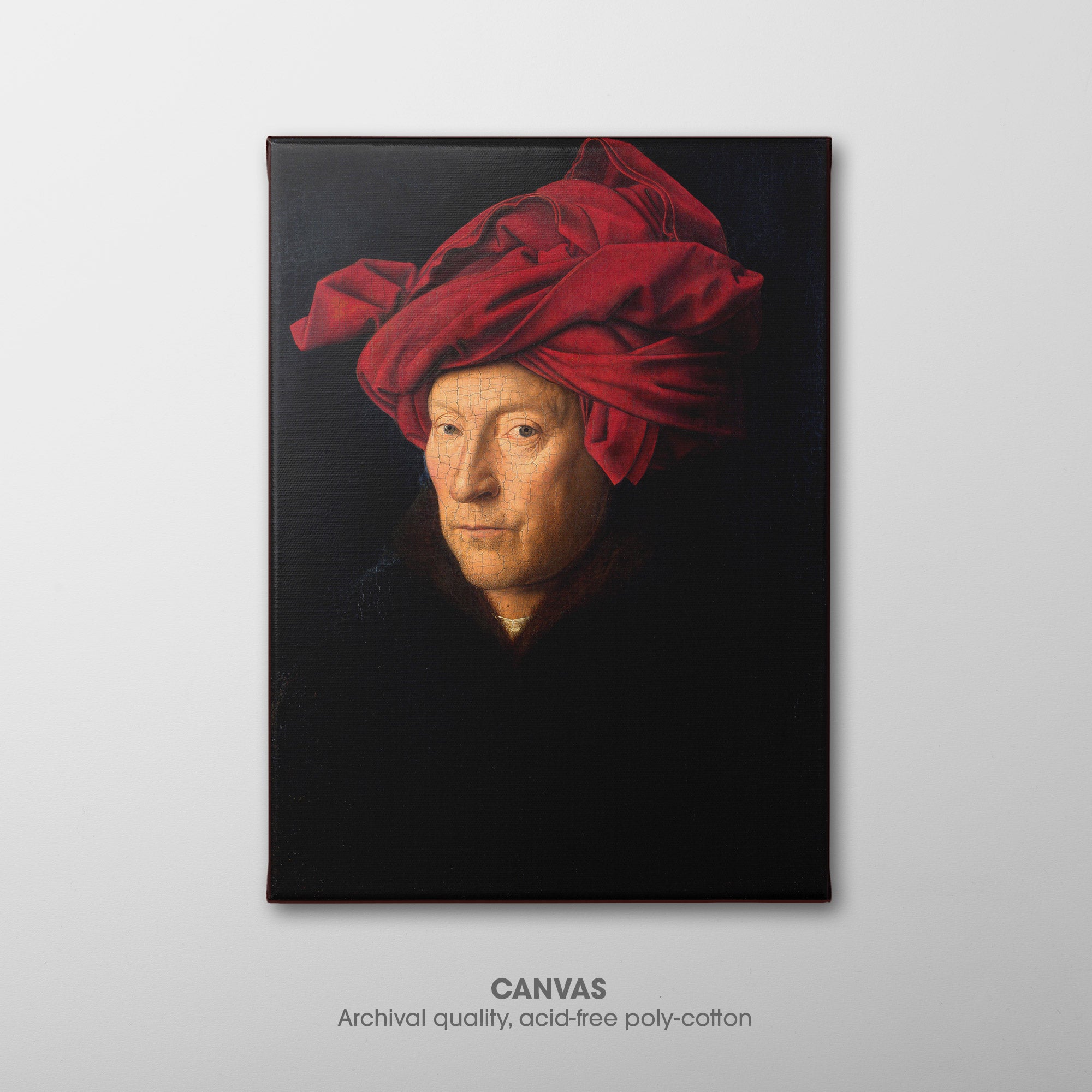
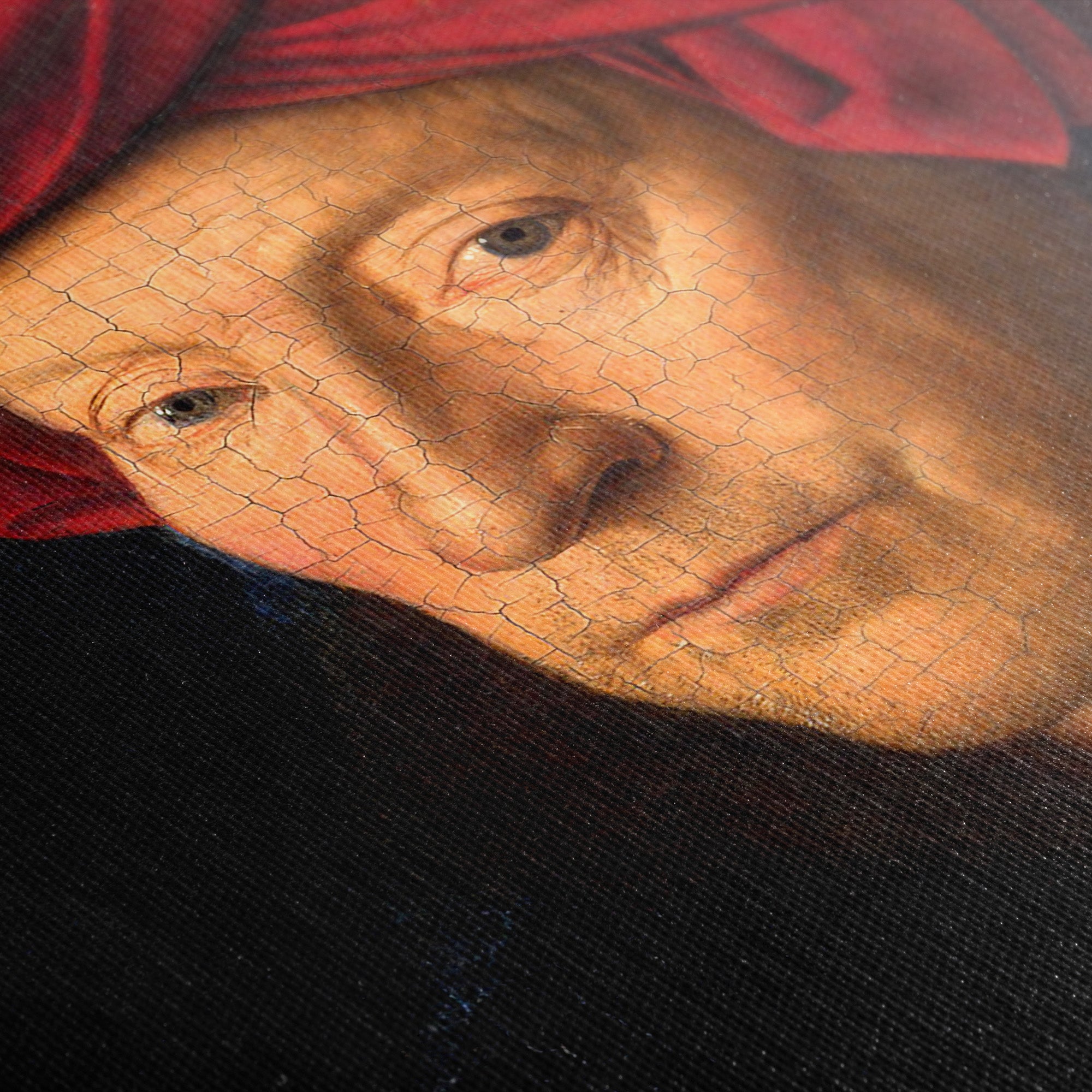 Portrait of a Man in a Red Turban (1433) by Jan van Eyck is possibly a self portrait, indicated by aspects like van Eyck's larger than usual motto on the original frame, and the subject's unusually direct and confrontational gaze. Art historians ➵
Portrait of a Man in a Red Turban (1433) by Jan van Eyck is possibly a self portrait, indicated by aspects like van Eyck's larger than usual motto on the original frame, and the subject's unusually direct and confrontational gaze. Art historians ➵◰ Canvas Reproductions
⧈ Framed Art Prints -
Man with a Blue Chaperon ☶ Van Eyck ☴ Canvas
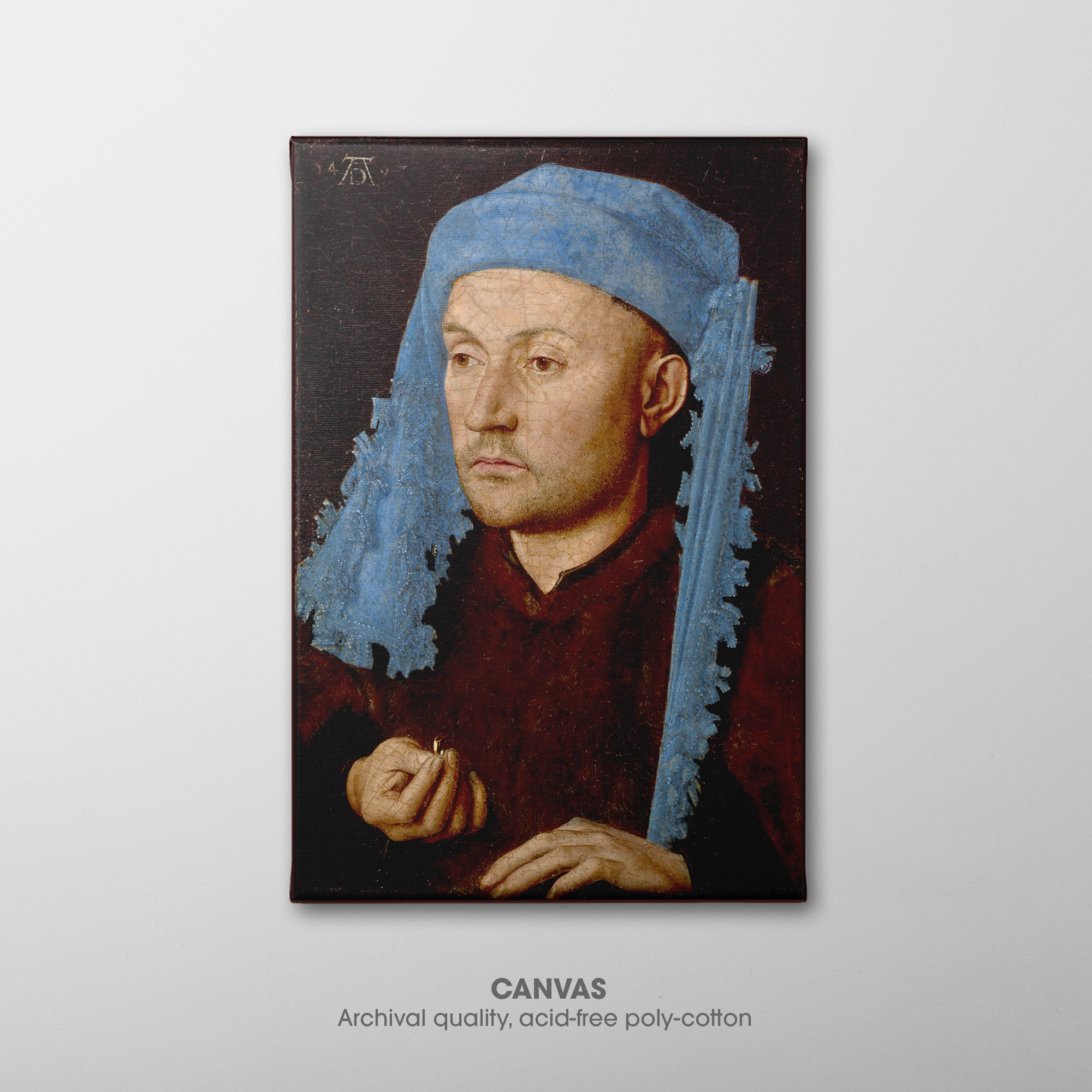
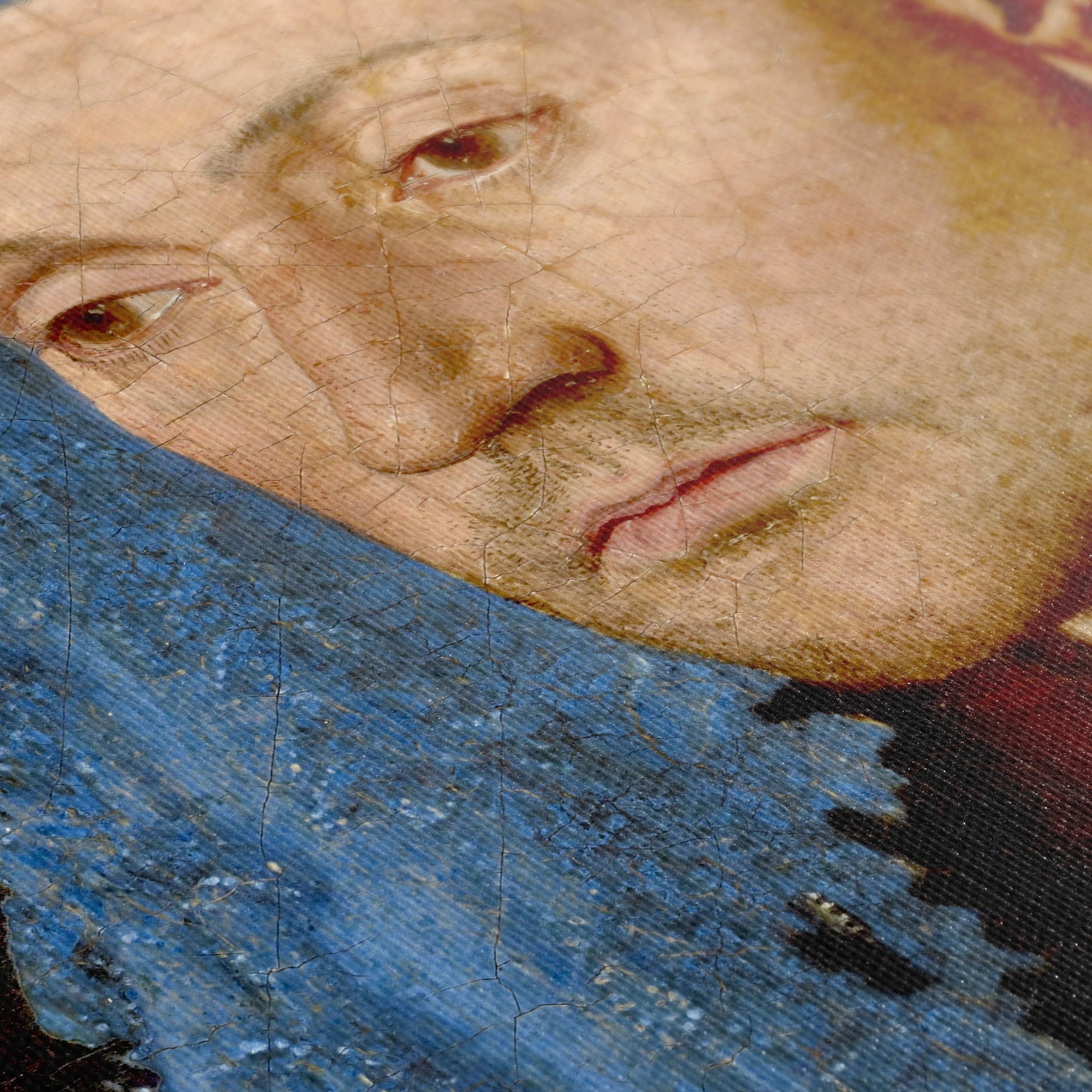 Portrait of a Man with a Blue Chaperon (1430) by Jan van Eyck depicts a man in a blue headdress presenting a ring. Artists did not title their works in the Northern Renaissance period, so his name and true profession have been ➵
Portrait of a Man with a Blue Chaperon (1430) by Jan van Eyck depicts a man in a blue headdress presenting a ring. Artists did not title their works in the Northern Renaissance period, so his name and true profession have been ➵◰ Canvas Reproductions
⧈ Framed Art Prints -
The Arnolfini Portrait ☷ Van Eyck ☲ Canvas
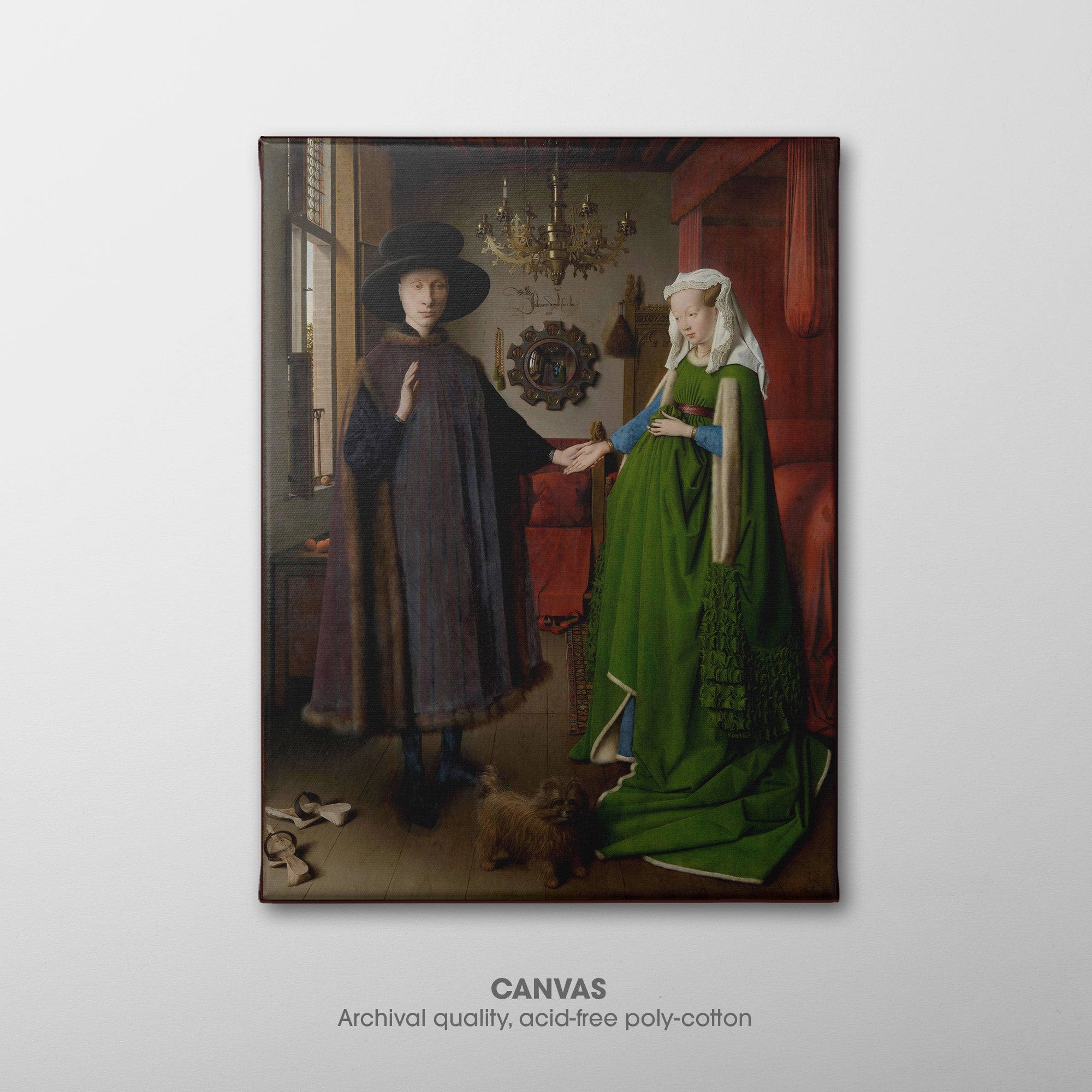
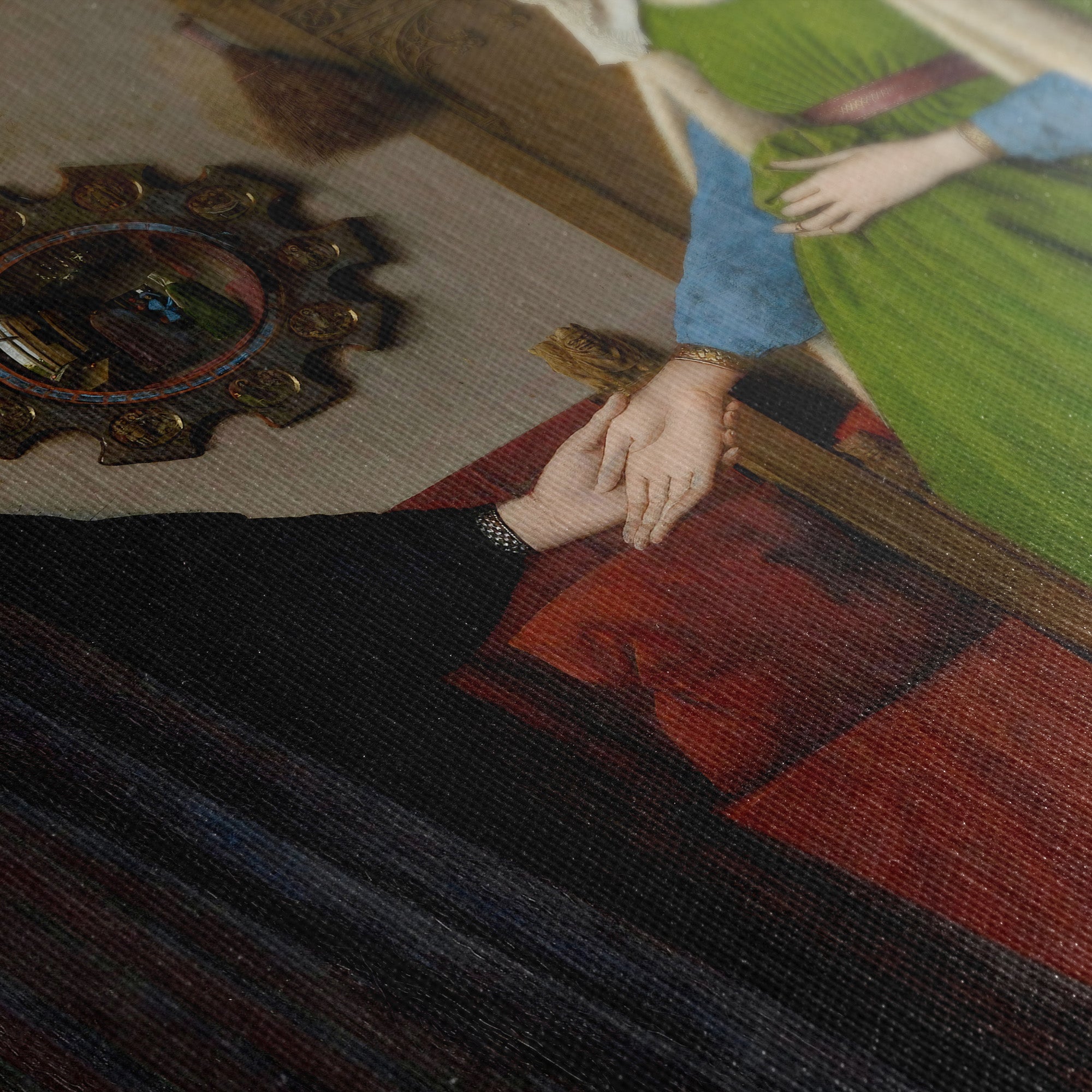 The Arnolfini Portrait (1434) by Jan van Eyck is considered one of the most original and complex paintings in Western art due to its stunning detail, complex iconography, geometric perspective, and expansion of space with the use of a mirror. It is ➵
The Arnolfini Portrait (1434) by Jan van Eyck is considered one of the most original and complex paintings in Western art due to its stunning detail, complex iconography, geometric perspective, and expansion of space with the use of a mirror. It is ➵◰ Canvas Reproductions
⧈ Framed Art Prints -
The Geographer ☷ Vermeer ☶ Canvas
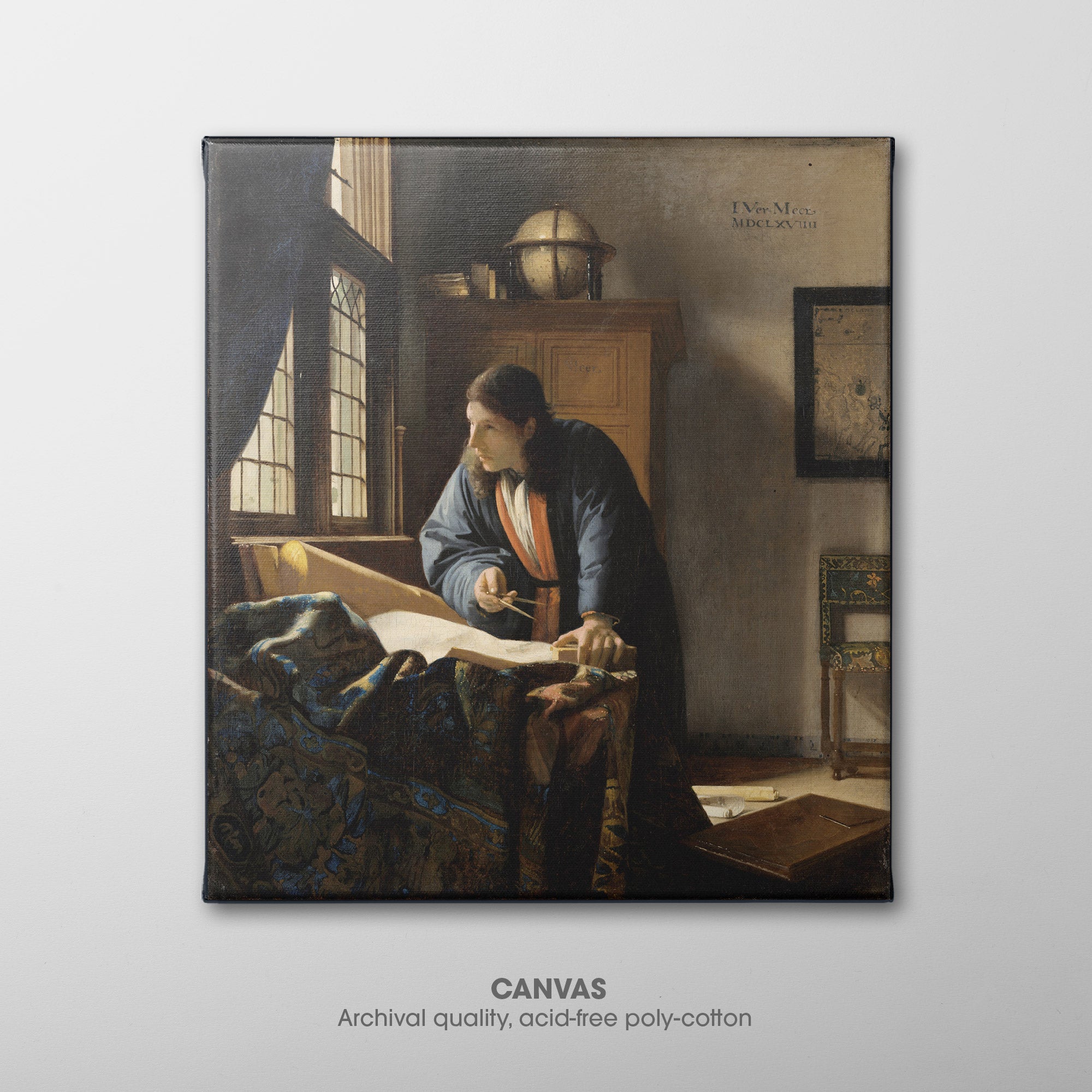
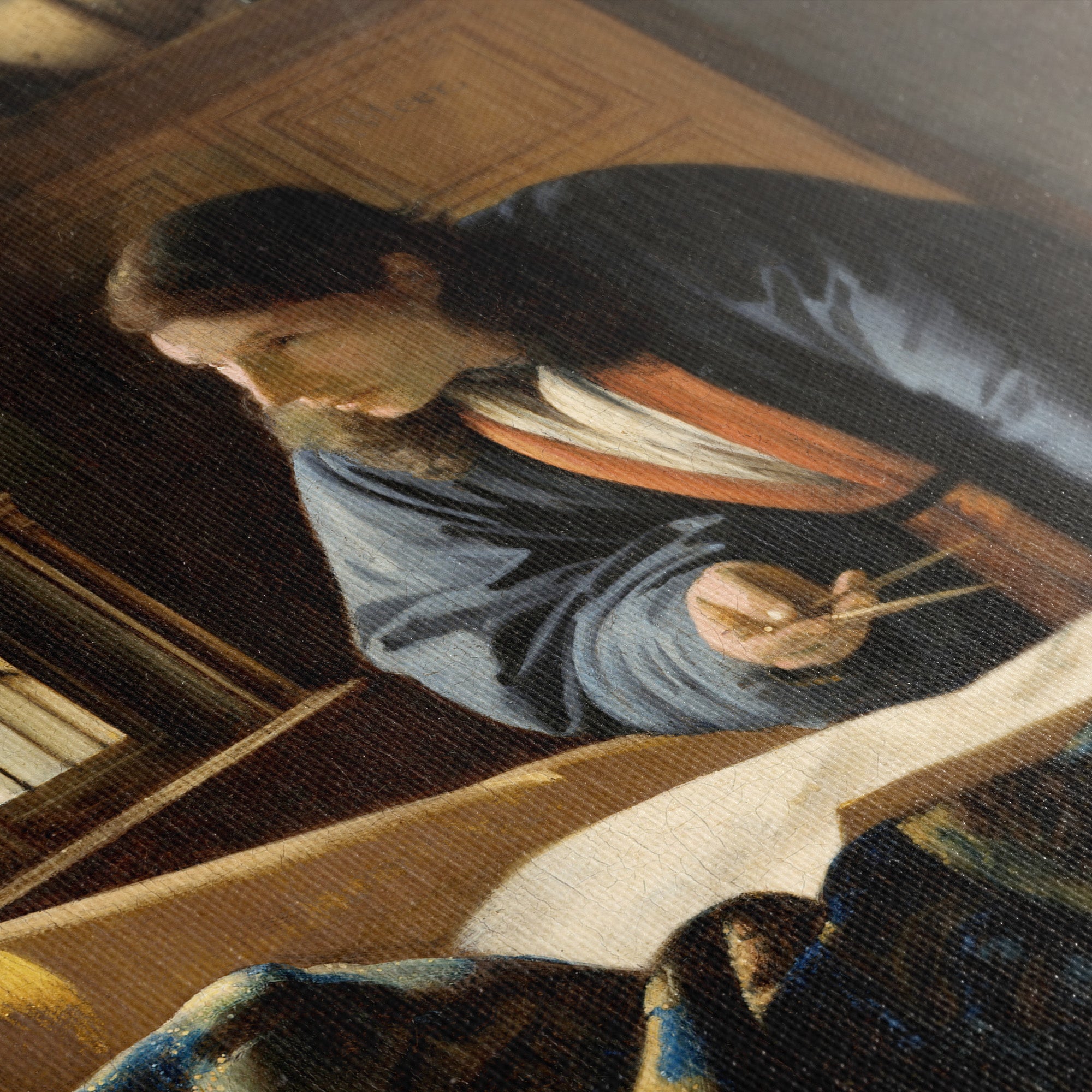 The Geographer (1669) by Johannes Vermeer is one of only three paintings Vermeer signed and dated (the other two are The Astronomer and The Procuress). It is closely paired with The Astronomer, which used the same model in the same dress, and ➵
The Geographer (1669) by Johannes Vermeer is one of only three paintings Vermeer signed and dated (the other two are The Astronomer and The Procuress). It is closely paired with The Astronomer, which used the same model in the same dress, and ➵◰ Canvas Reproductions
⧈ Framed Art Prints -
Girl with a Pearl Earring ☶ Vermeer ☴ Canvas
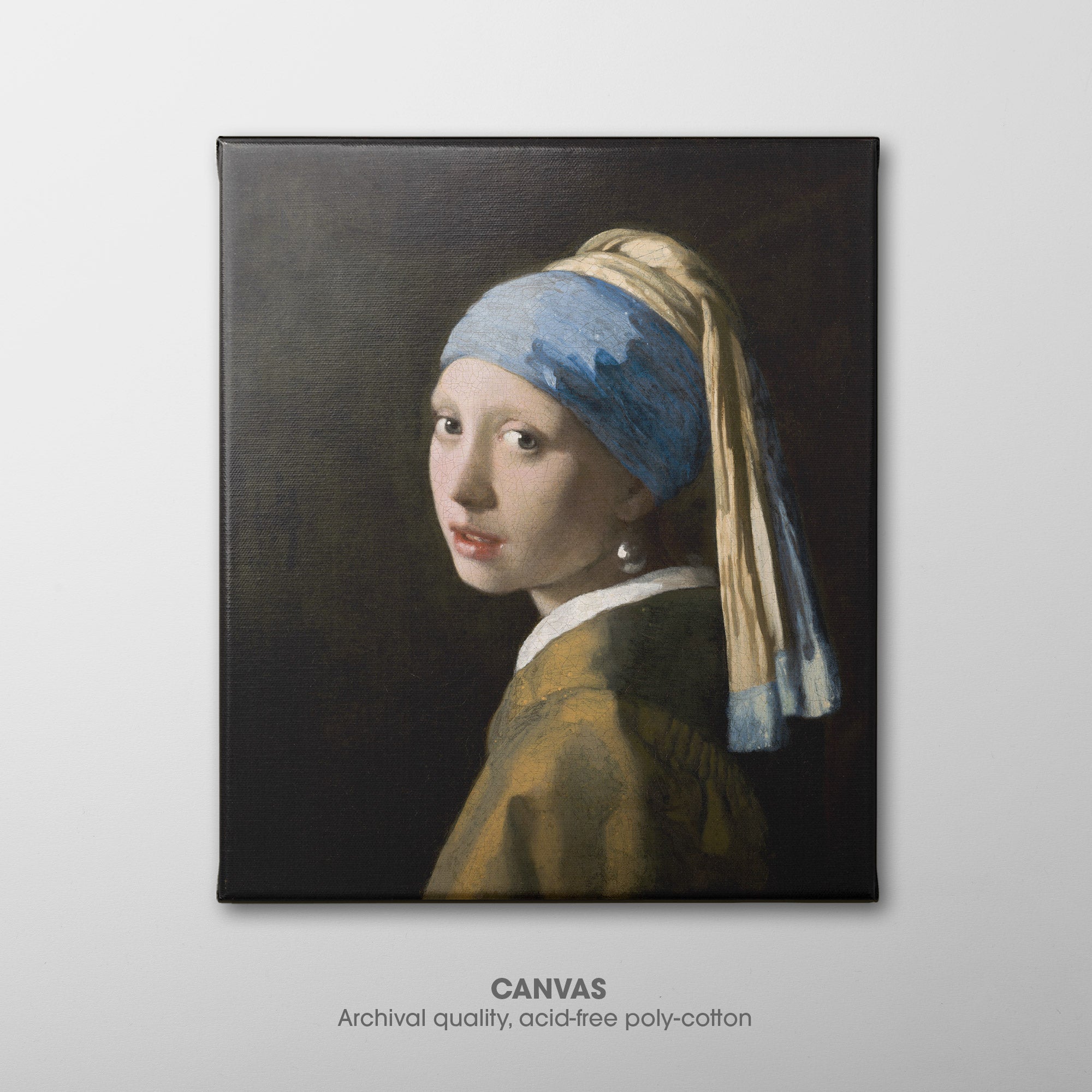
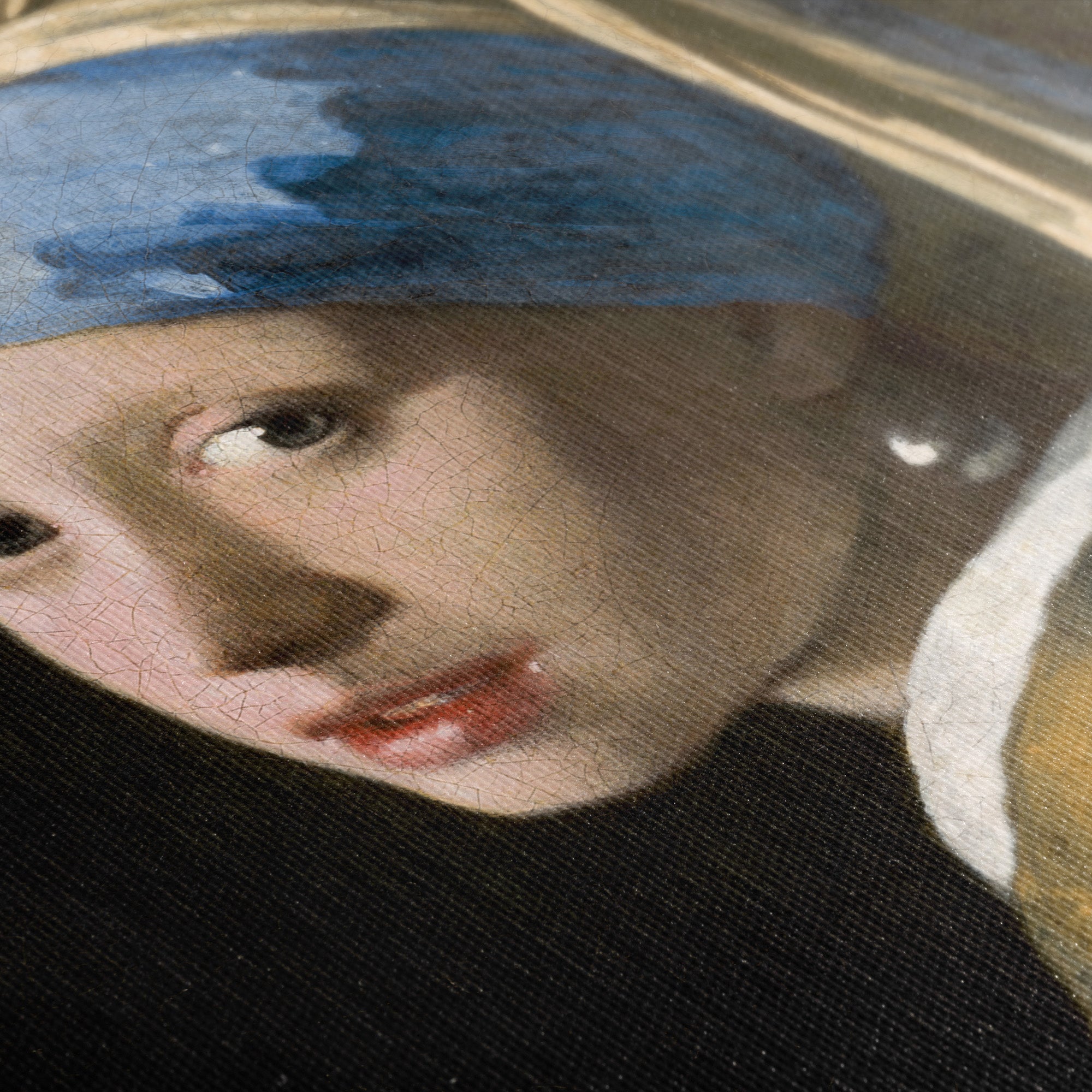 Girl with a Pearl Earring (1665) by Johannes Vermeer, also know as Girl with a Turban, was widely exhibited throughout the 20th century, making it one of the world's most recognizable paintings. Technically not a portrait, it is a "tronie" - not ➵
Girl with a Pearl Earring (1665) by Johannes Vermeer, also know as Girl with a Turban, was widely exhibited throughout the 20th century, making it one of the world's most recognizable paintings. Technically not a portrait, it is a "tronie" - not ➵◰ Canvas Reproductions
⧈ Framed Art Prints -
Symphony in White No. 1 ☴ Whistler ☲ Canvas

 Symphony in White No. 1 (1862) by James McNeill Whistler, was originally called The White Girl. Whistler later called it Symphony in White, No. 1 to emphasize his "art for art's sake" philosophy. The painting was created as a simple study in ➵
Symphony in White No. 1 (1862) by James McNeill Whistler, was originally called The White Girl. Whistler later called it Symphony in White, No. 1 to emphasize his "art for art's sake" philosophy. The painting was created as a simple study in ➵◰ Canvas Reproductions
⧈ Framed Art Prints -
Whistler's Mother ☶ James McNeill Whistler ☷ Canvas
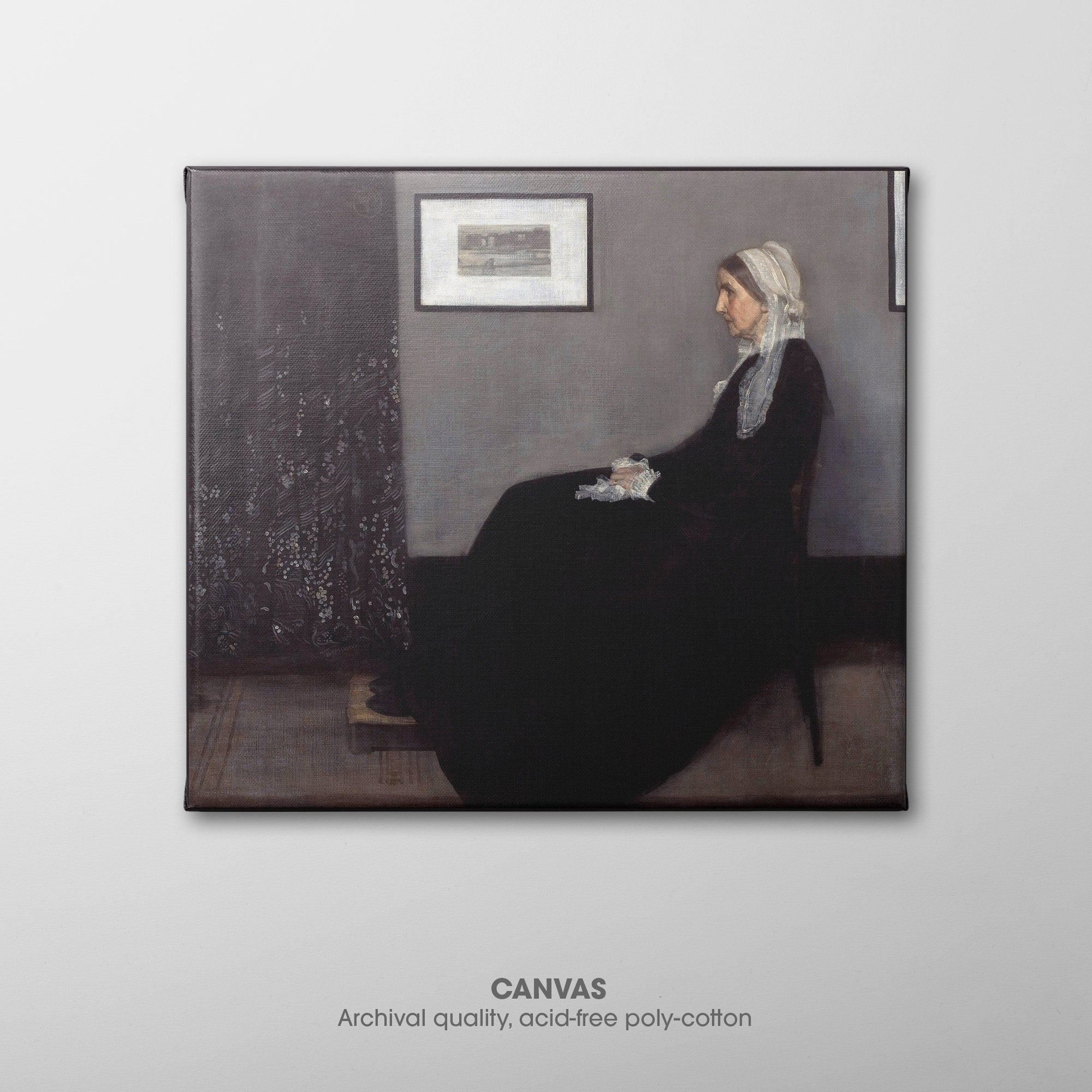
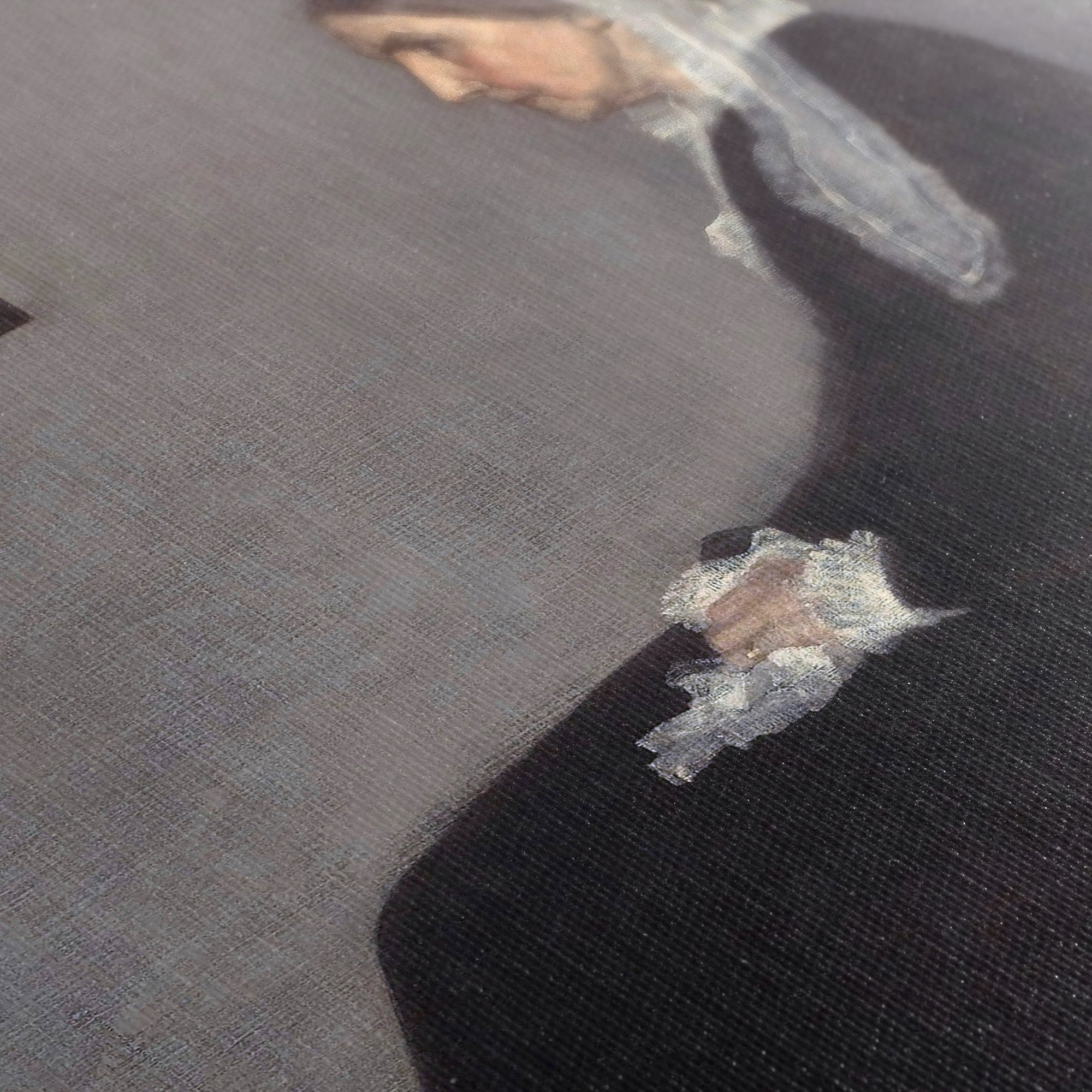 Arrangement in Grey and Black No. 1 (1871) by James McNeill Whistler, best known as Whistler's Mother, or Portrait of the Artist's Mother, is one of the most famous works outside the United States by an American artist. When first exhibited, the ➵
Arrangement in Grey and Black No. 1 (1871) by James McNeill Whistler, best known as Whistler's Mother, or Portrait of the Artist's Mother, is one of the most famous works outside the United States by an American artist. When first exhibited, the ➵◰ Canvas Reproductions
⧈ Framed Art Prints -
American Gothic ☰ Grant Wood ☷ Canvas
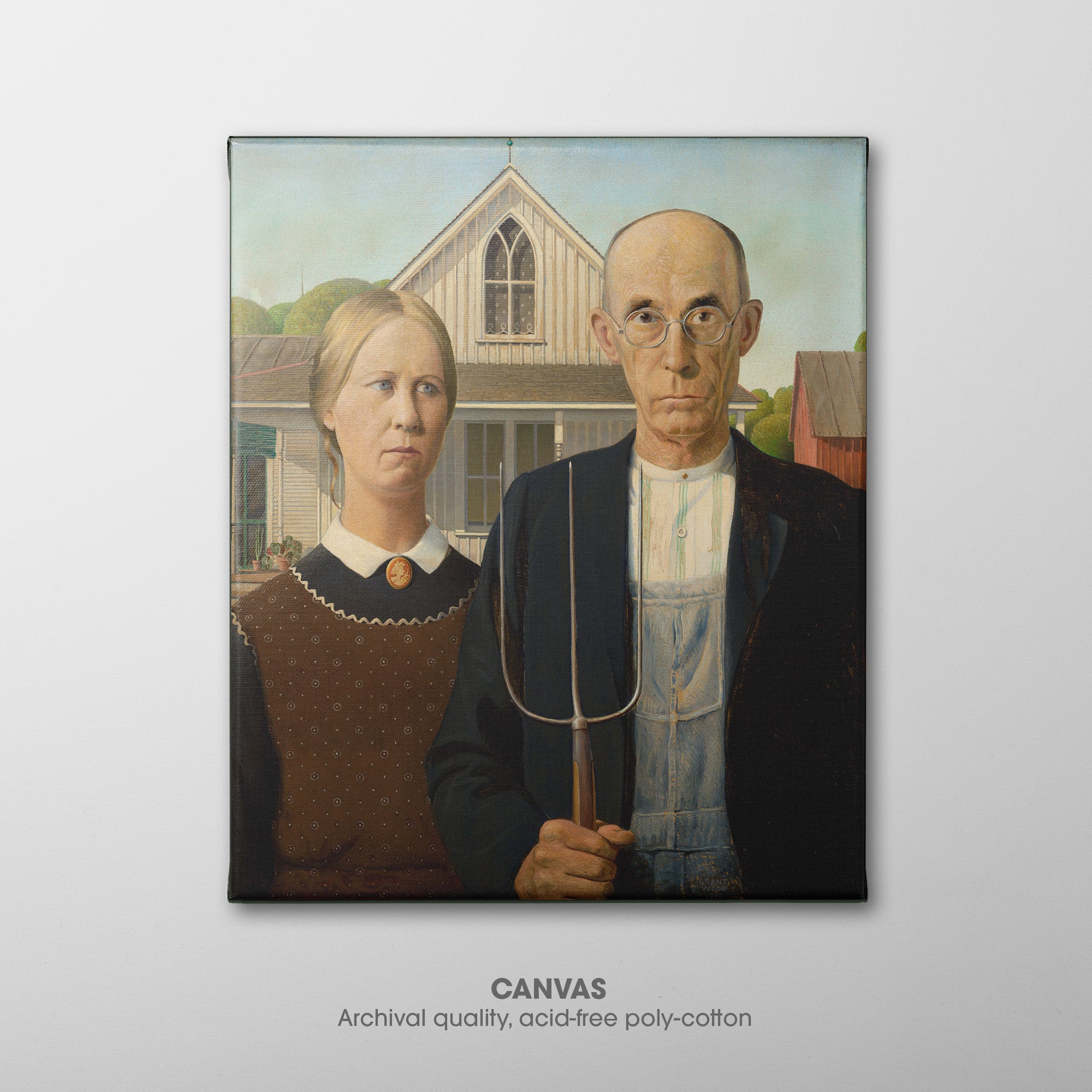
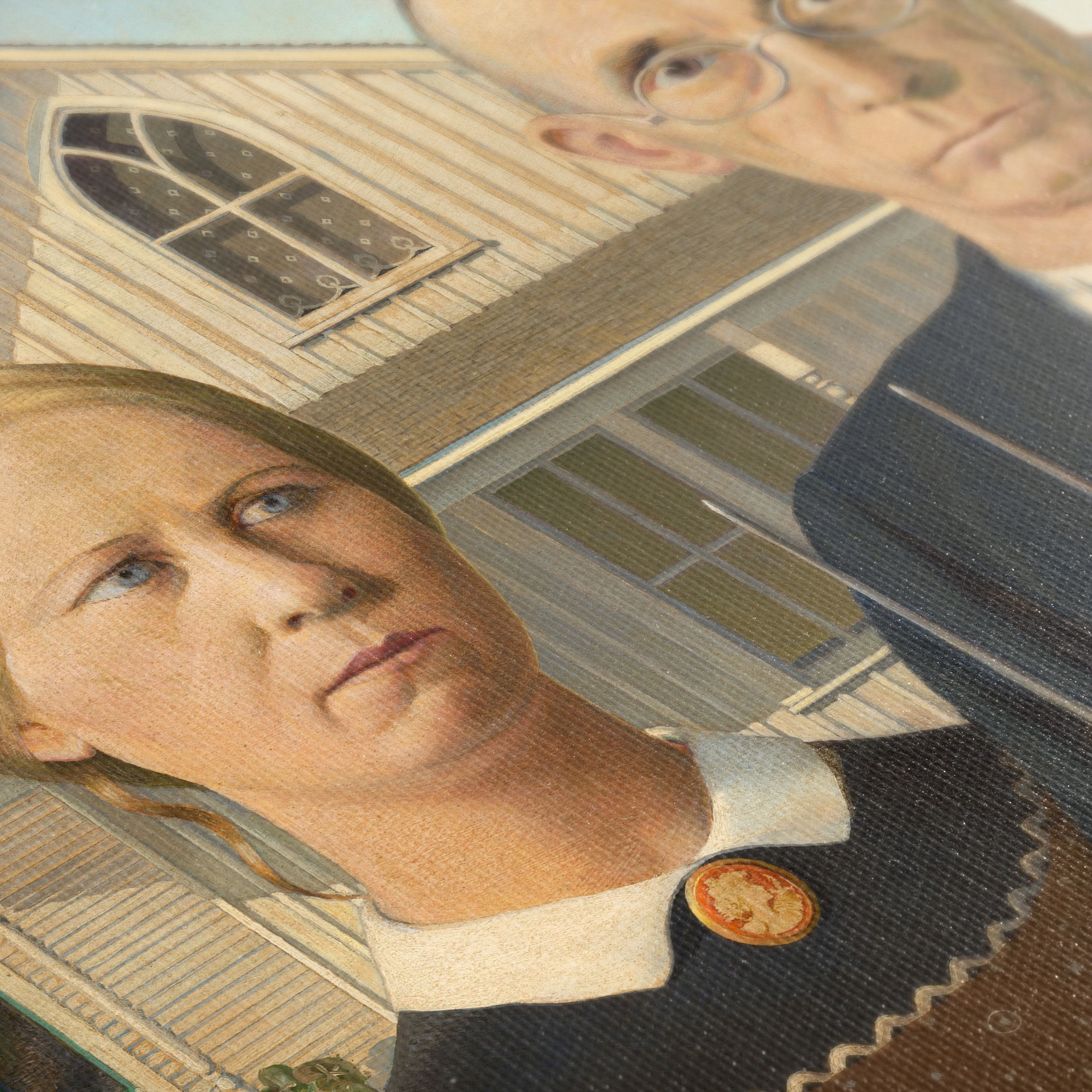 American Gothic (1930) by Grant Wood is one of the most famous American paintings of the 20th century. Wood was inspired to paint the house in Eldon, Iowa, along with "the kind of people I fancied should live in that house." The ➵
American Gothic (1930) by Grant Wood is one of the most famous American paintings of the 20th century. Wood was inspired to paint the house in Eldon, Iowa, along with "the kind of people I fancied should live in that house." The ➵◰ Canvas Reproductions
⧈ Framed Art Prints -
Death and Life ☲ Klimt ☷ Canvas
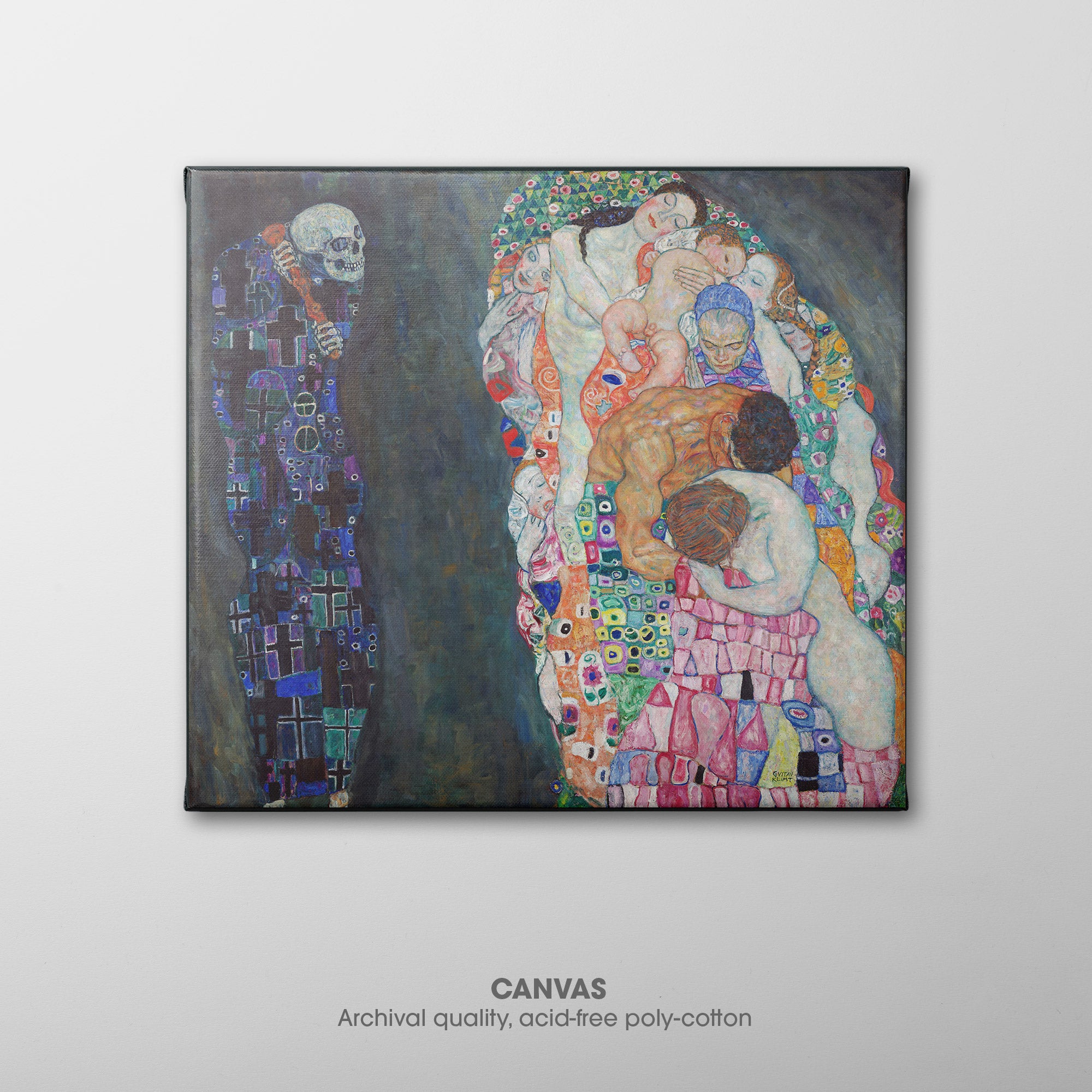
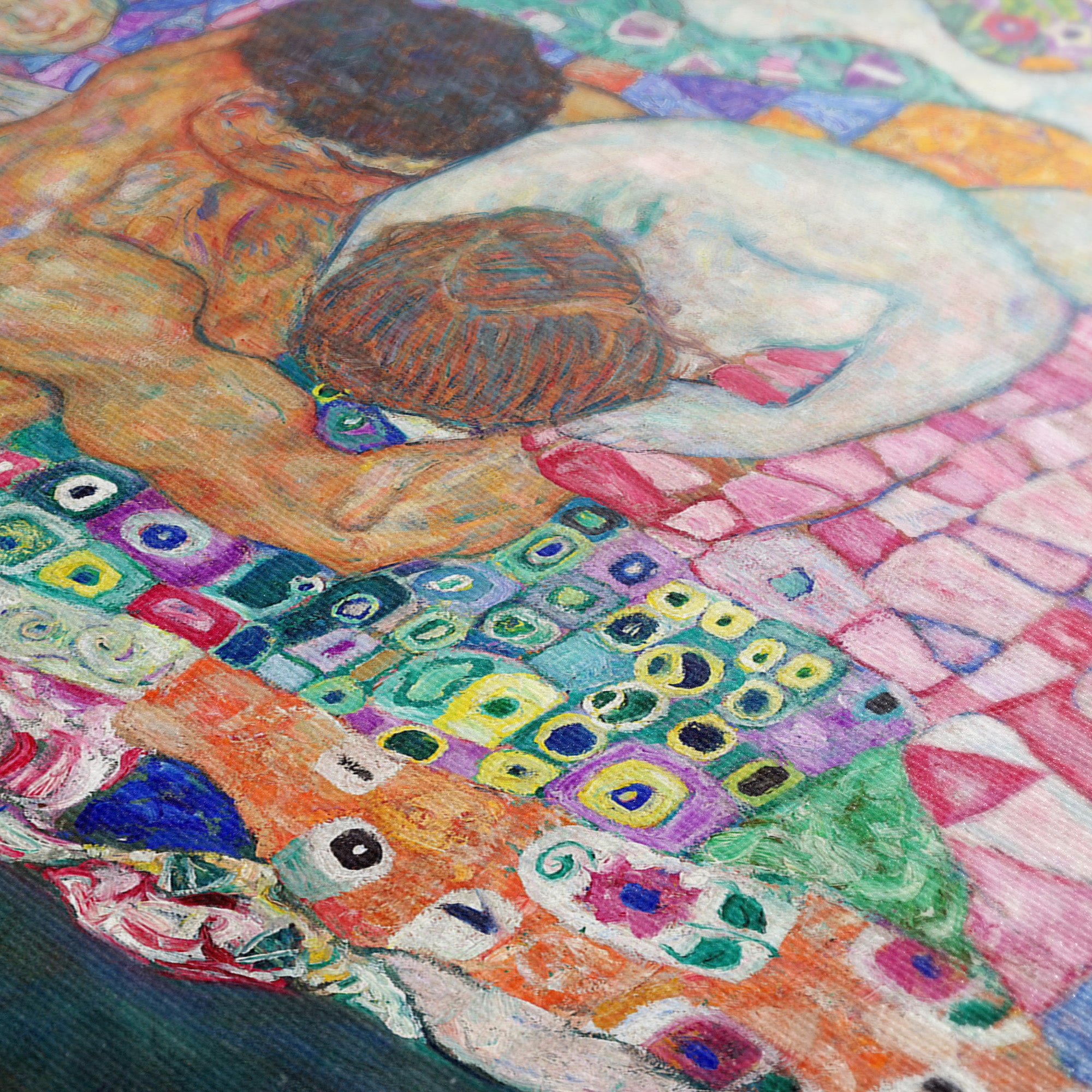 Death and Life (1915) by Gustav Klimt is regarded as one of his greatest allegories - he described it as his most important figurative work. A menacing Grim Reaper with cudgel watches over a vibrant display of all stages of life, including ➵
Death and Life (1915) by Gustav Klimt is regarded as one of his greatest allegories - he described it as his most important figurative work. A menacing Grim Reaper with cudgel watches over a vibrant display of all stages of life, including ➵◰ Canvas Reproductions
⧈ Framed Art Prints ⨳ Blankets -
The Great Wave ☶ Hokusai ☵ Canvas
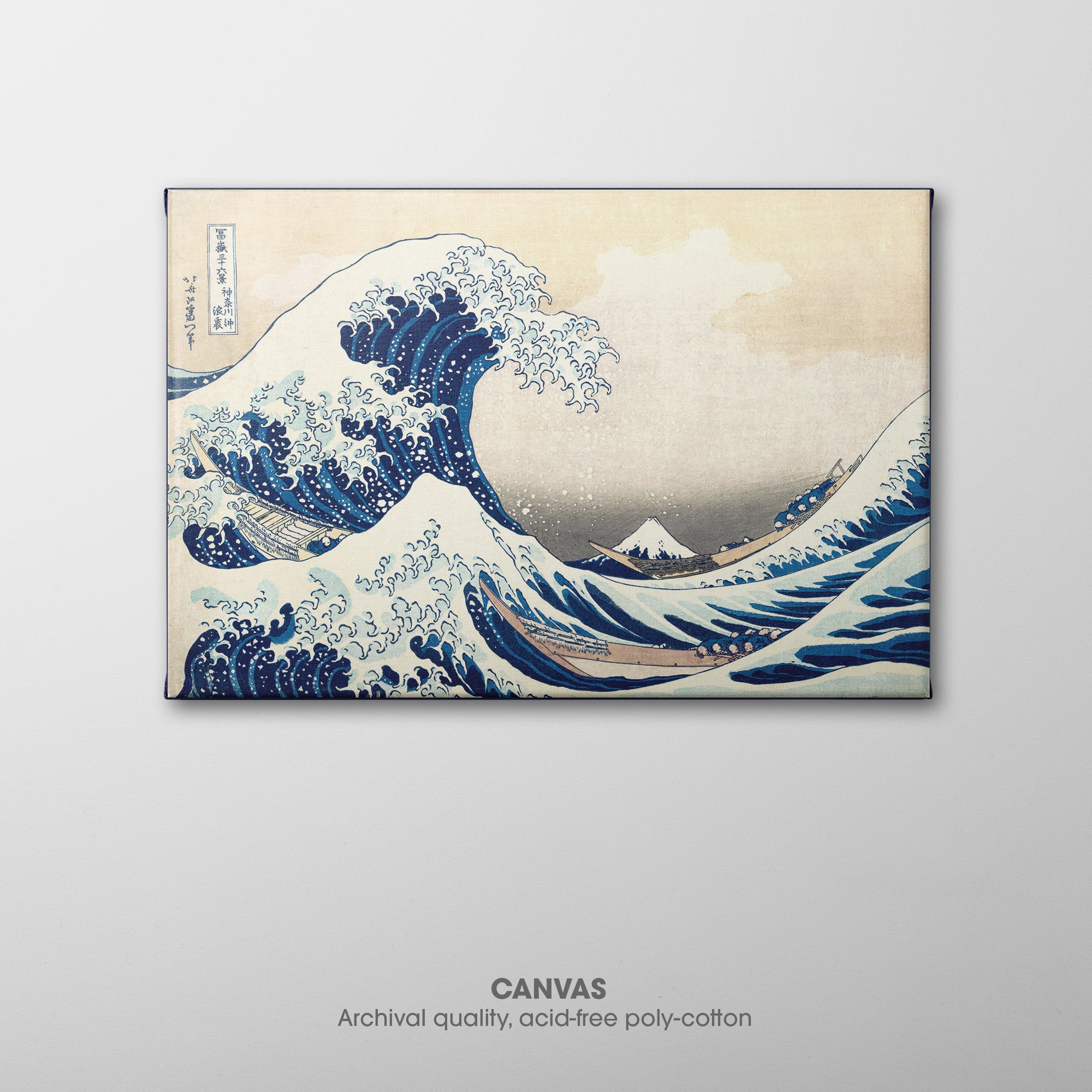
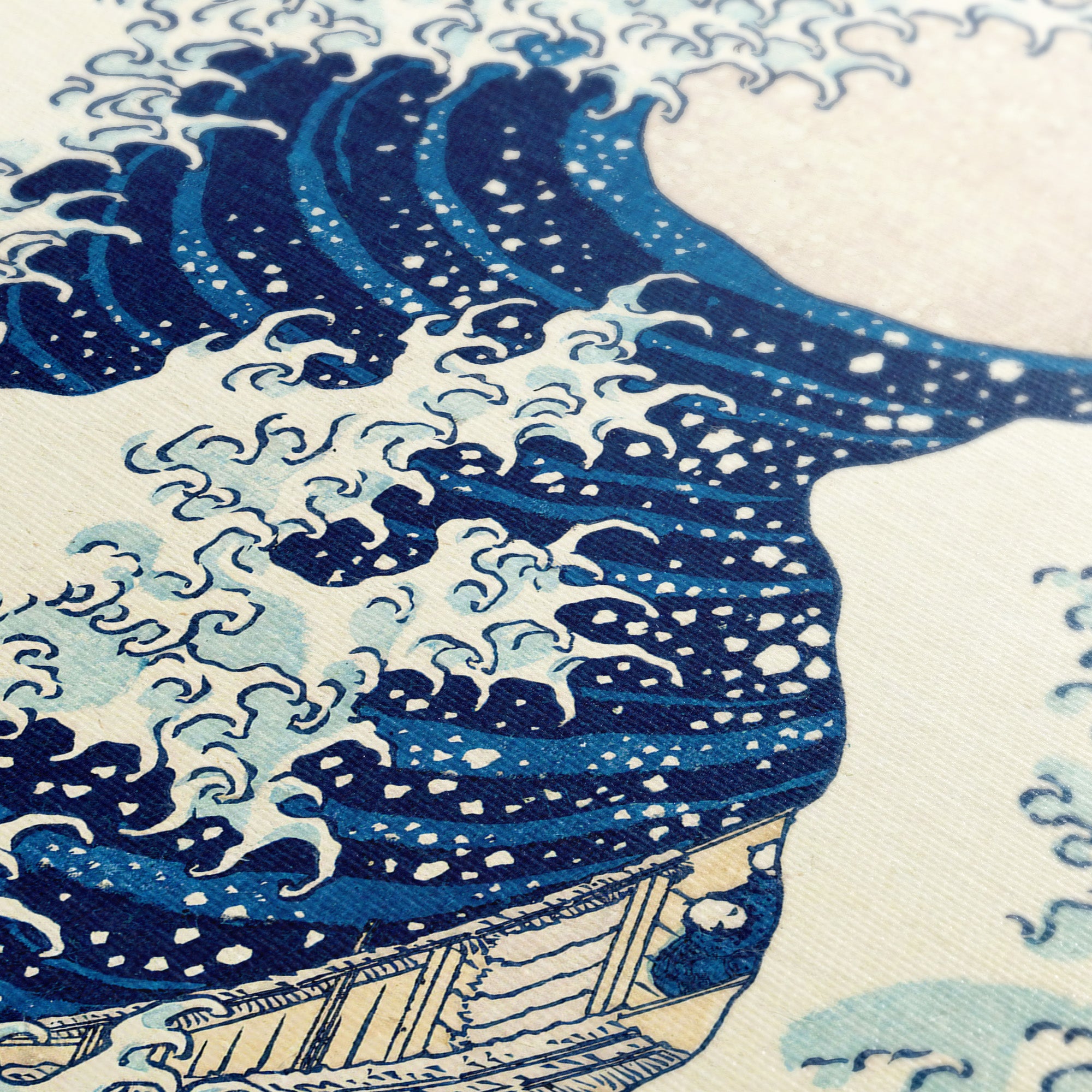 The Great Wave off Kanagawa (1831) by Katsushika Hokusai, also known as Under the Wave off Kanagawa (神奈川沖浪裏, Kanagawa-oki Nami Ura) is a Japanese ukiyo-e woodblock print, and possibly the most reproduced image in the history of art. The print depicts a ➵
The Great Wave off Kanagawa (1831) by Katsushika Hokusai, also known as Under the Wave off Kanagawa (神奈川沖浪裏, Kanagawa-oki Nami Ura) is a Japanese ukiyo-e woodblock print, and possibly the most reproduced image in the history of art. The print depicts a ➵◰ Canvas Reproductions
⧈ Framed Art Prints ⨳ Blankets -
Sunday Afternoon ☷ Seurat ☵ Canvas
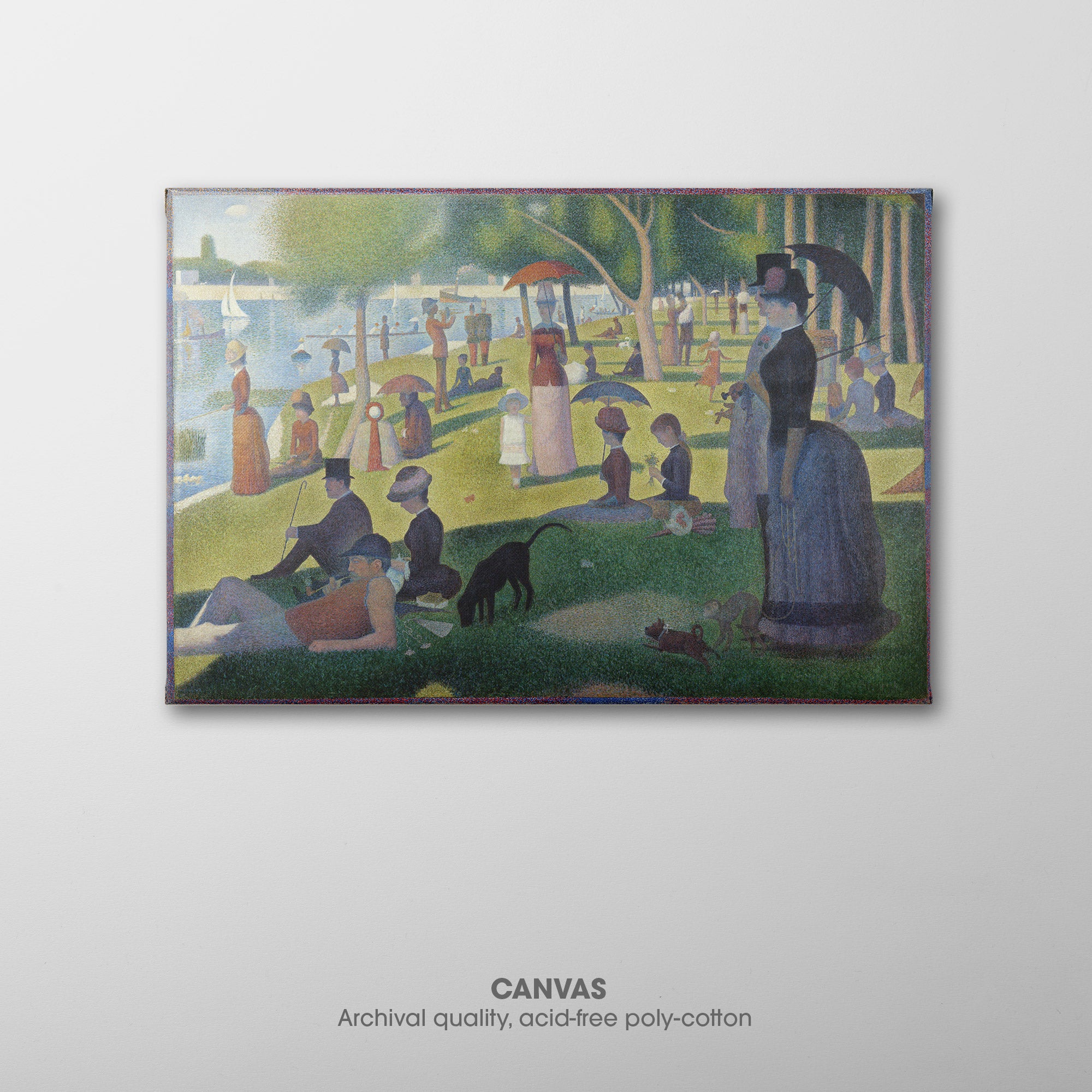
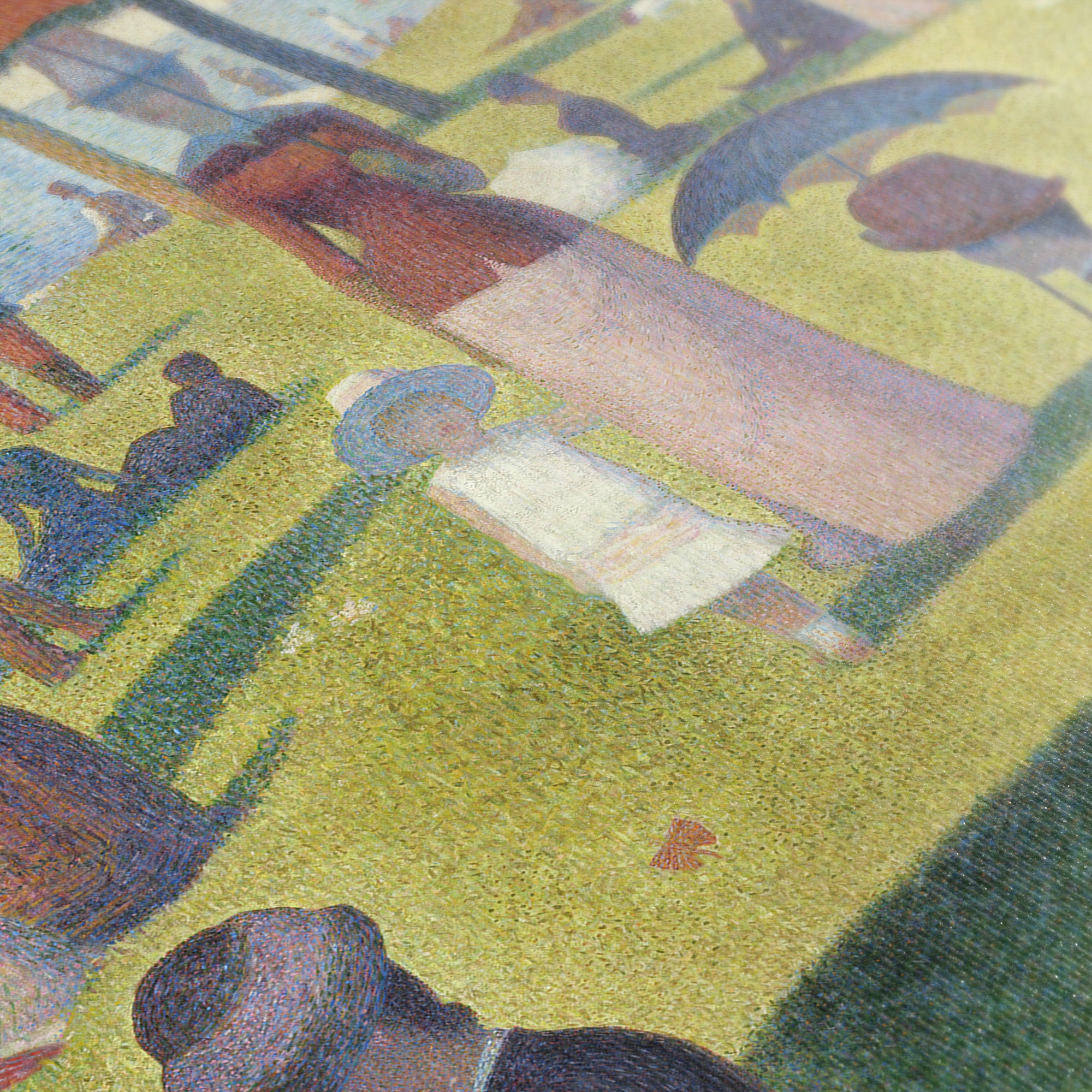 A Sunday Afternoon on the Island of La Grande Jatte (1886) by Georges Seurat is his most famous painting, and a major example of pointillism. The painting depicts Parisians at a park on the banks of the River Seine. Some of the ➵
A Sunday Afternoon on the Island of La Grande Jatte (1886) by Georges Seurat is his most famous painting, and a major example of pointillism. The painting depicts Parisians at a park on the banks of the River Seine. Some of the ➵◰ Canvas Reproductions
⧈ Framed Art Prints ⨳ Blankets -
Skull of a Skeleton with Burning Cigarette ☷ Van Gogh ☲ Canvas
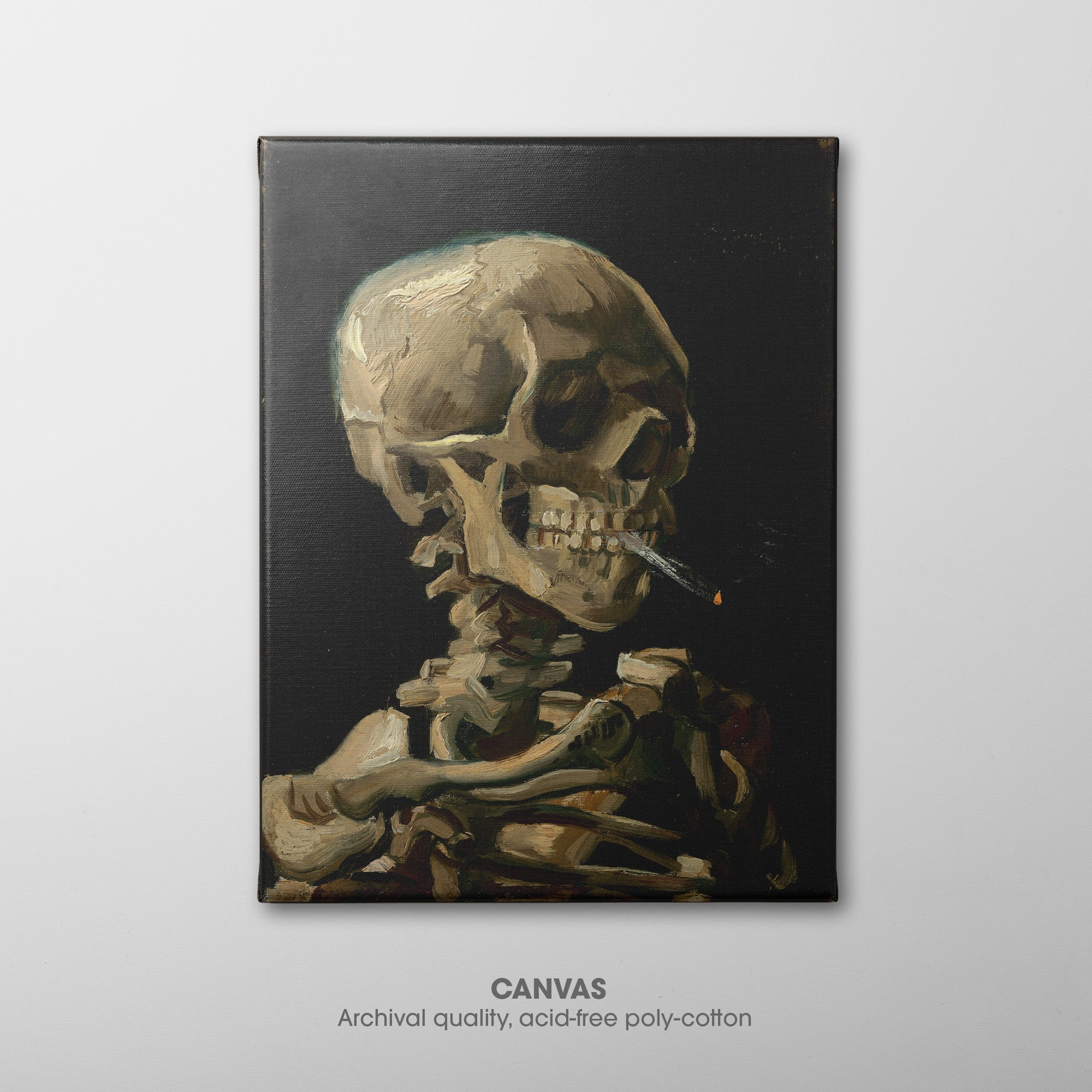
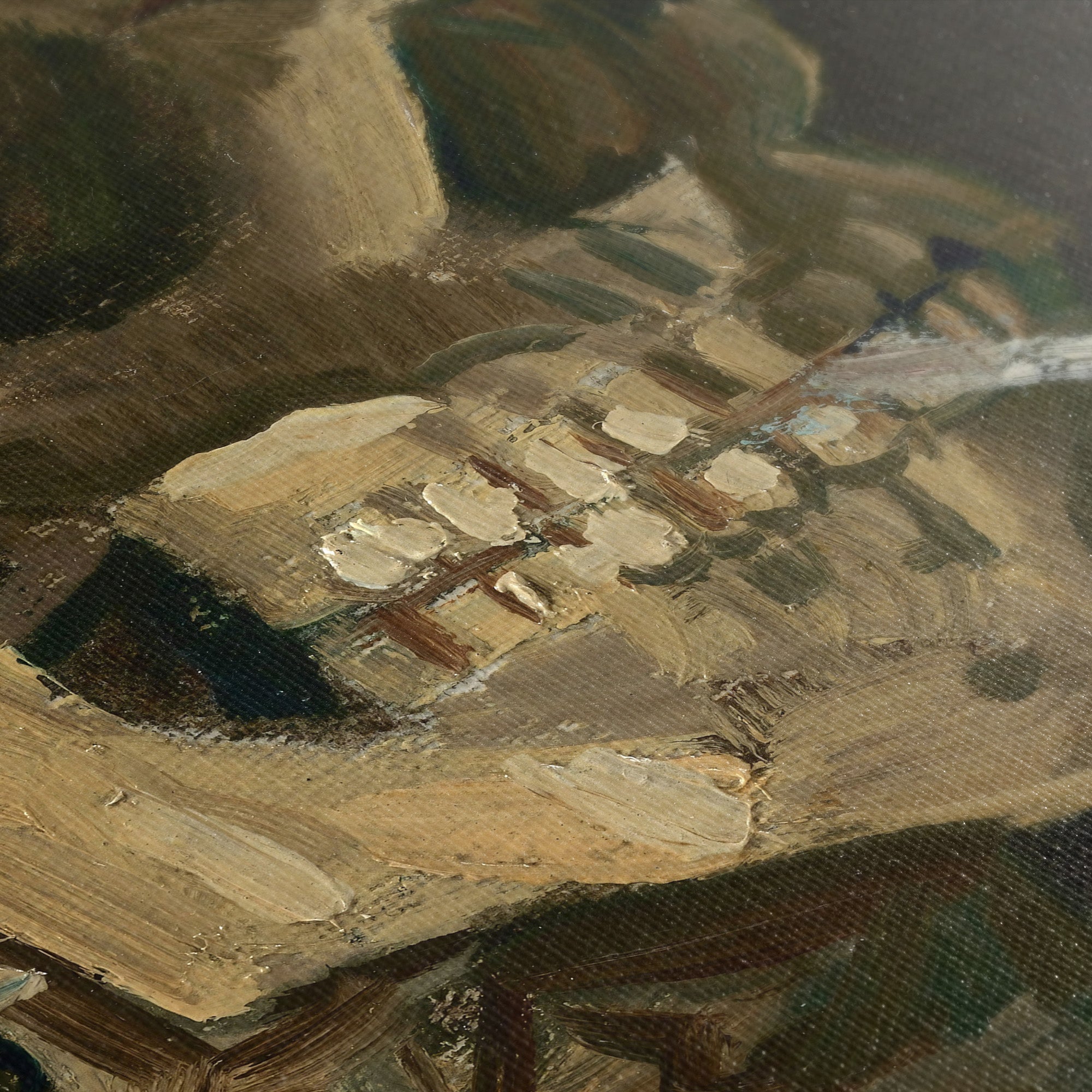 Skull of a Skeleton with Burning Cigarette (1886) by Vincent van Gogh is self descriptive. He depicted skeletons and skulls only a few times in his career. It is considered a memento mori, a reminder of death, at a time when he ➵
Skull of a Skeleton with Burning Cigarette (1886) by Vincent van Gogh is self descriptive. He depicted skeletons and skulls only a few times in his career. It is considered a memento mori, a reminder of death, at a time when he ➵◰ Canvas Reproductions
⧈ Framed Art Prints -
Almond Blossom ☷ Van Gogh ☰ Canvas

 Almond Blossom (1890) by Vincent van Gogh was made to celebrate the birth of his nephew and namesake, son of his brother Theo and sister-in-law Jo. The painting reflects van Gogh's interest in Japanese woodcuts. The closeup composition is unlike any of ➵
Almond Blossom (1890) by Vincent van Gogh was made to celebrate the birth of his nephew and namesake, son of his brother Theo and sister-in-law Jo. The painting reflects van Gogh's interest in Japanese woodcuts. The closeup composition is unlike any of ➵◰ Canvas Reproductions
⧈ Framed Art Prints ⨳ Blankets -
The Kiss ☲ Klimt ☰ Canvas
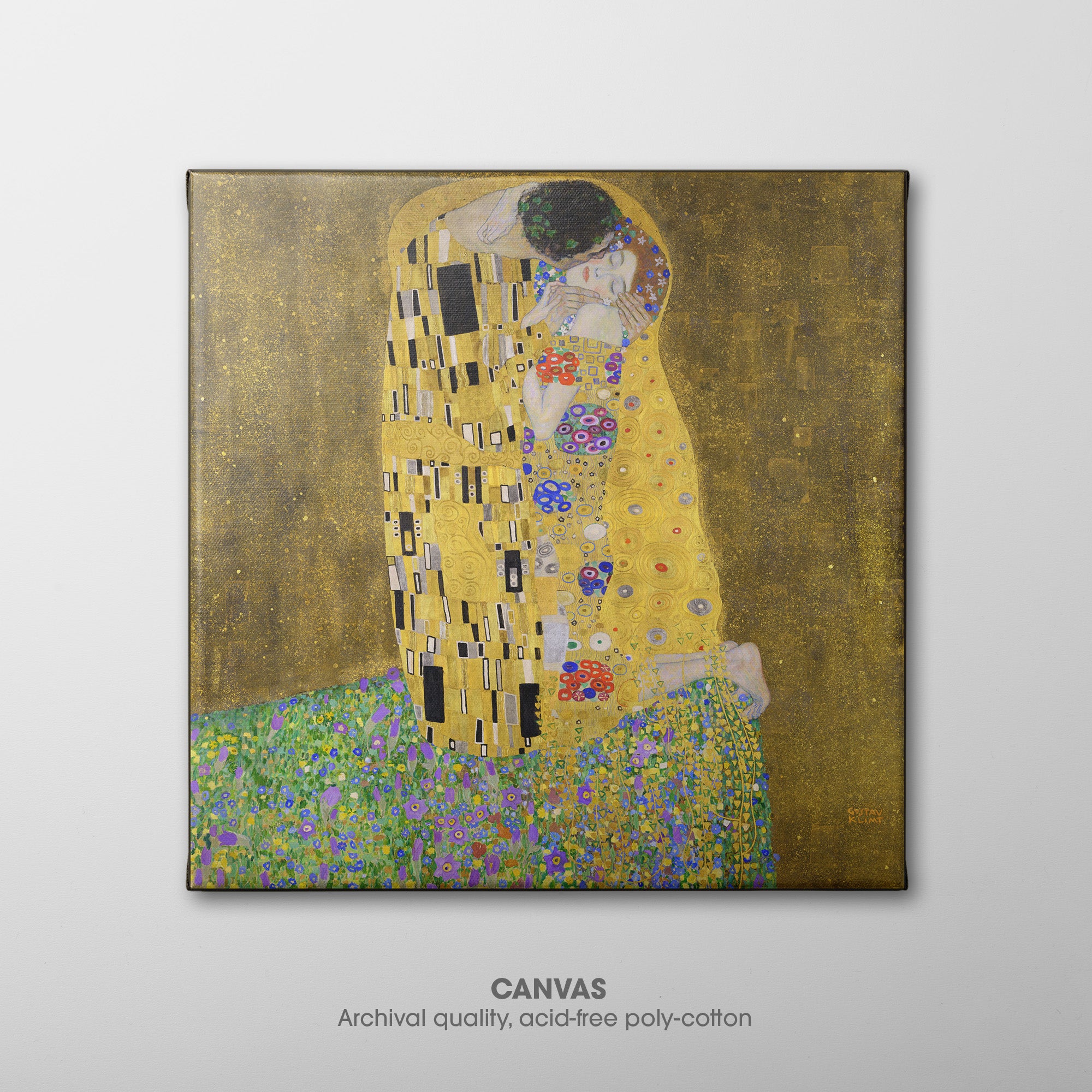
 The Kiss (1908) by Gustav Klimt is considered to be one of Klimt's most important works, and is certainly the most well known. The painting depicts a couple embracing under intricate rectangular and floral patterned robes that reflect Art Nouveau as well ➵
The Kiss (1908) by Gustav Klimt is considered to be one of Klimt's most important works, and is certainly the most well known. The painting depicts a couple embracing under intricate rectangular and floral patterned robes that reflect Art Nouveau as well ➵◰ Canvas Reproductions
⧈ Framed Art Prints ⨳ Blankets -
Café Terrace at Night ☷ Van Gogh ☲ Canvas

 Café Terrace at Night (1888) by Vincent van Gogh, is also known as The Cafe Terrace on the Place du Forum, and Coffeehouse in the evening (Café, le soir) when it was first exhibited in 1891. It depicts an actual cafe in ➵
Café Terrace at Night (1888) by Vincent van Gogh, is also known as The Cafe Terrace on the Place du Forum, and Coffeehouse in the evening (Café, le soir) when it was first exhibited in 1891. It depicts an actual cafe in ➵◰ Canvas Reproductions
⧈ Framed Art Prints -
Starry Night ☲ Van Gogh ☰ Canvas

 The Starry Night (1889) by Vincent van Gogh is one of the most recognizable paintings in Western art. It depicts the view from his asylum room at Saint-Rémy-de-Provence. Van Gogh voluntarily admitted himself to the asylum after the breakdown that resulted in ➵
The Starry Night (1889) by Vincent van Gogh is one of the most recognizable paintings in Western art. It depicts the view from his asylum room at Saint-Rémy-de-Provence. Van Gogh voluntarily admitted himself to the asylum after the breakdown that resulted in ➵◰ Canvas Reproductions
⧈ Framed Art Prints ⨳ Blankets














































































